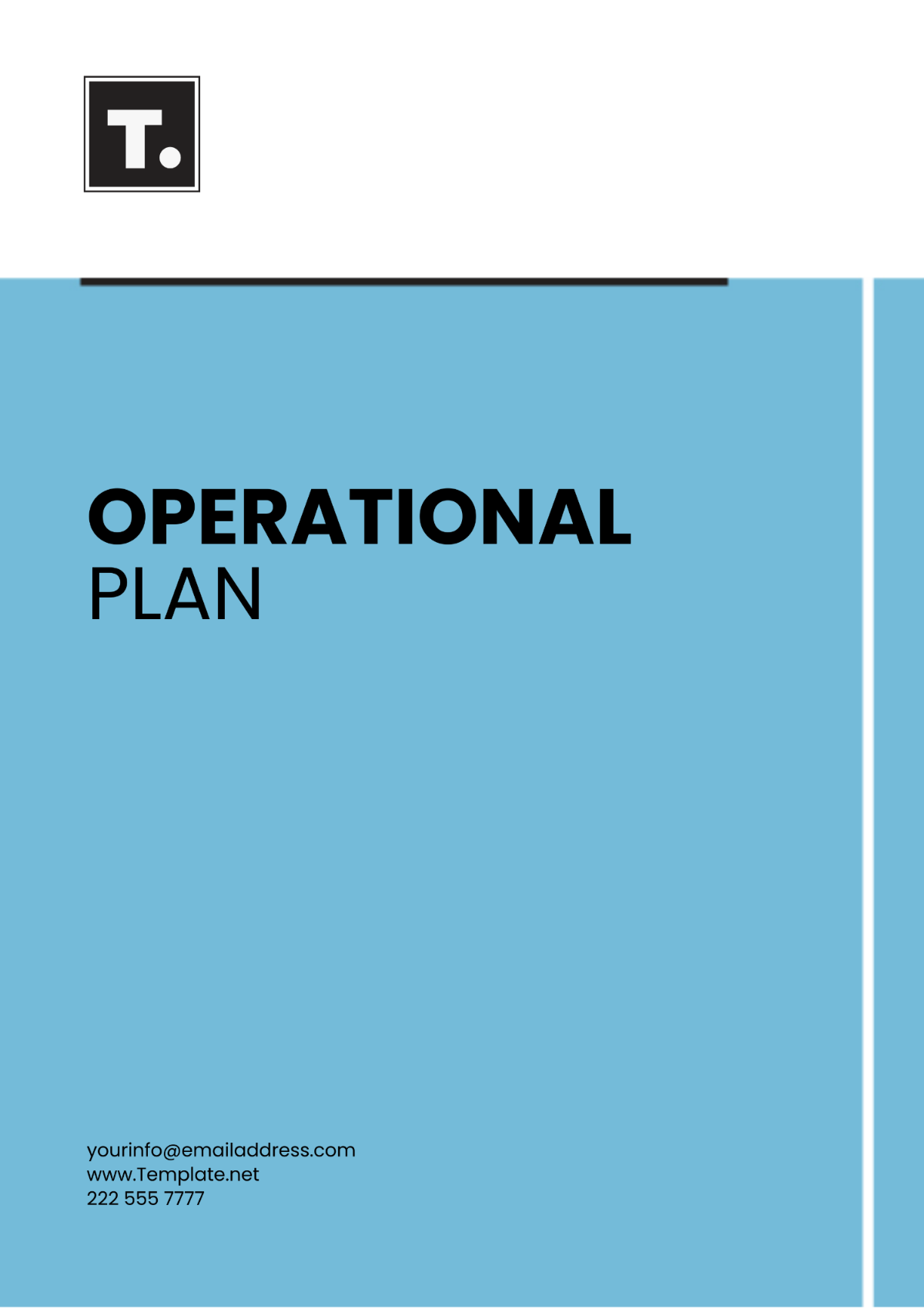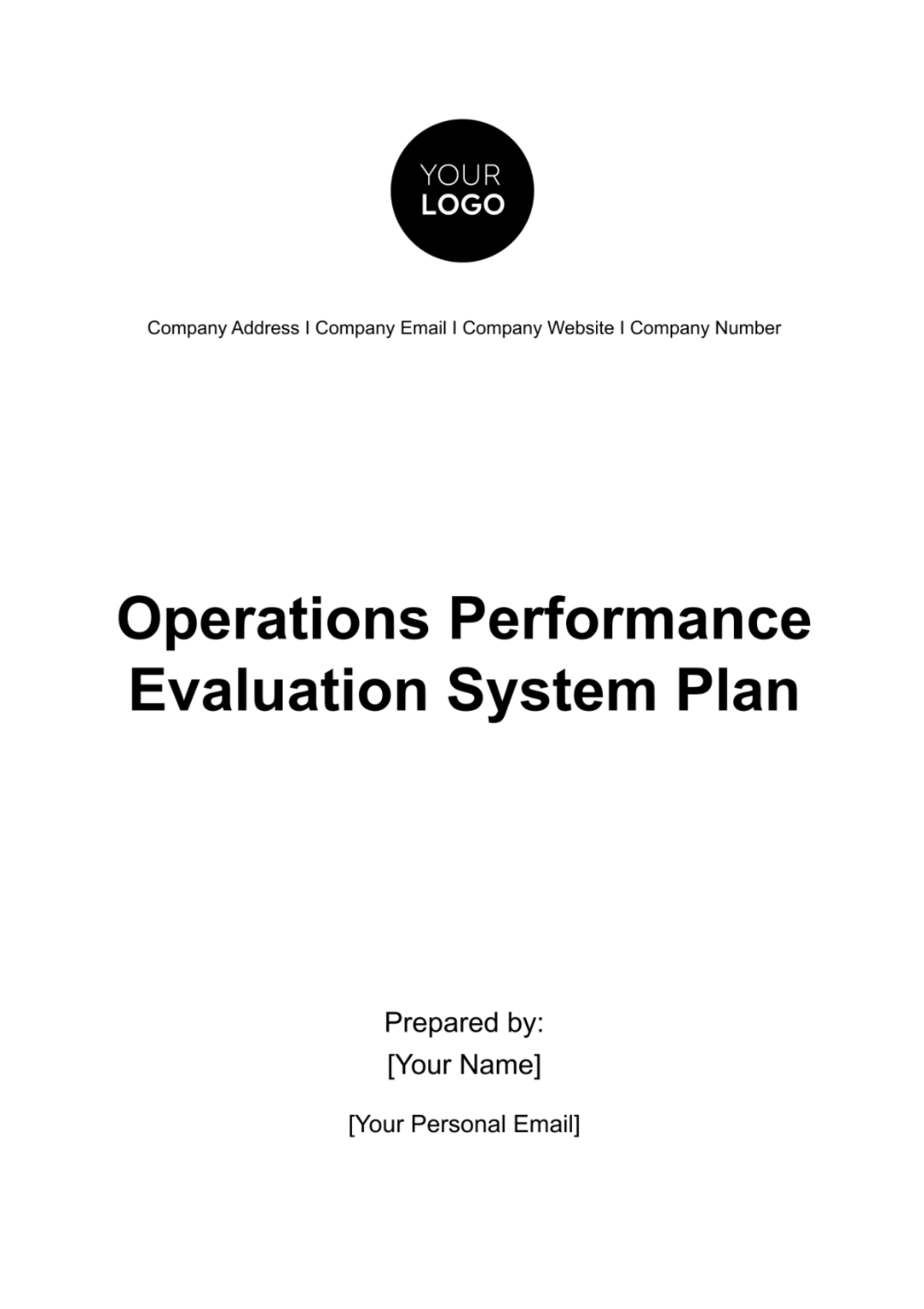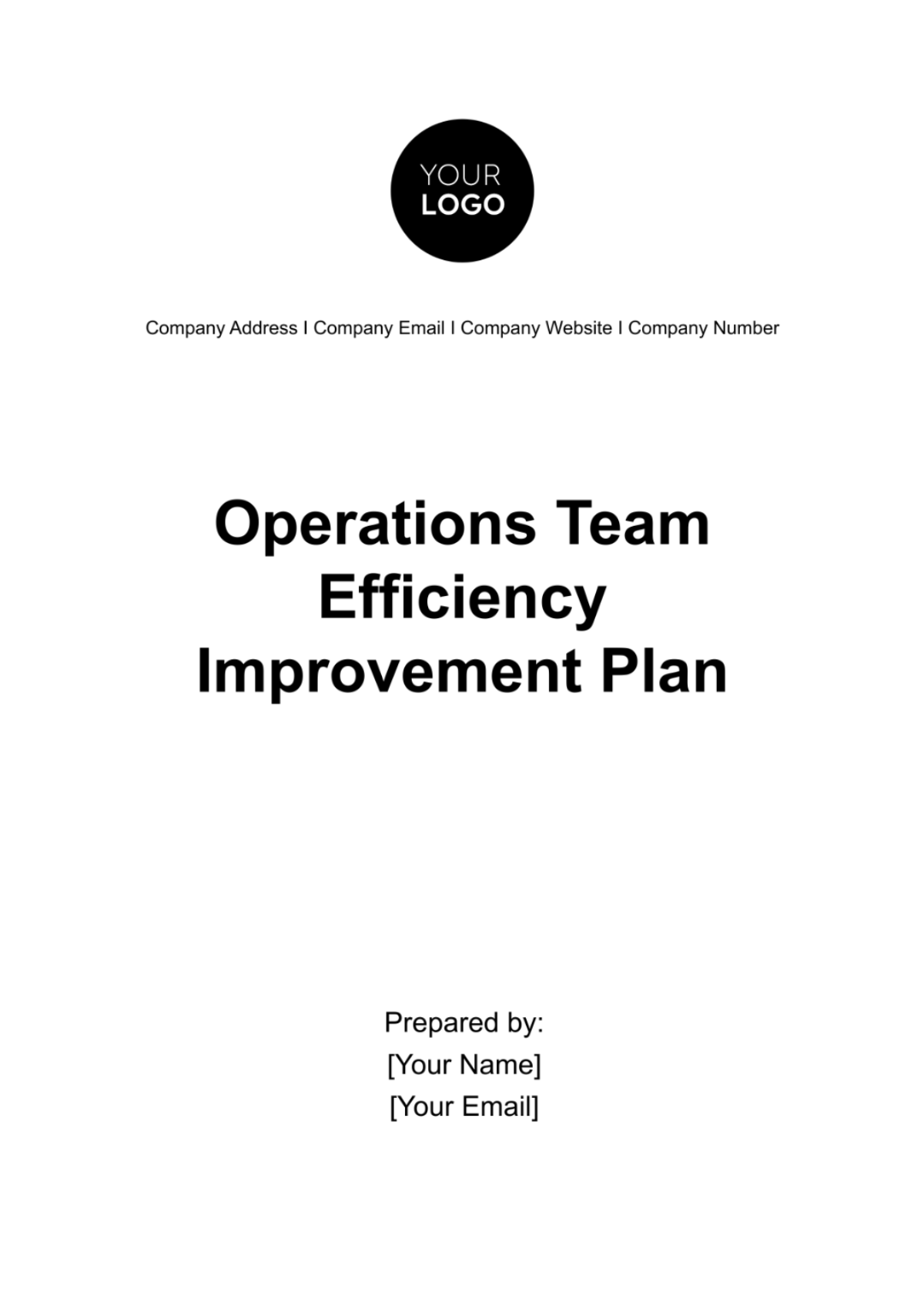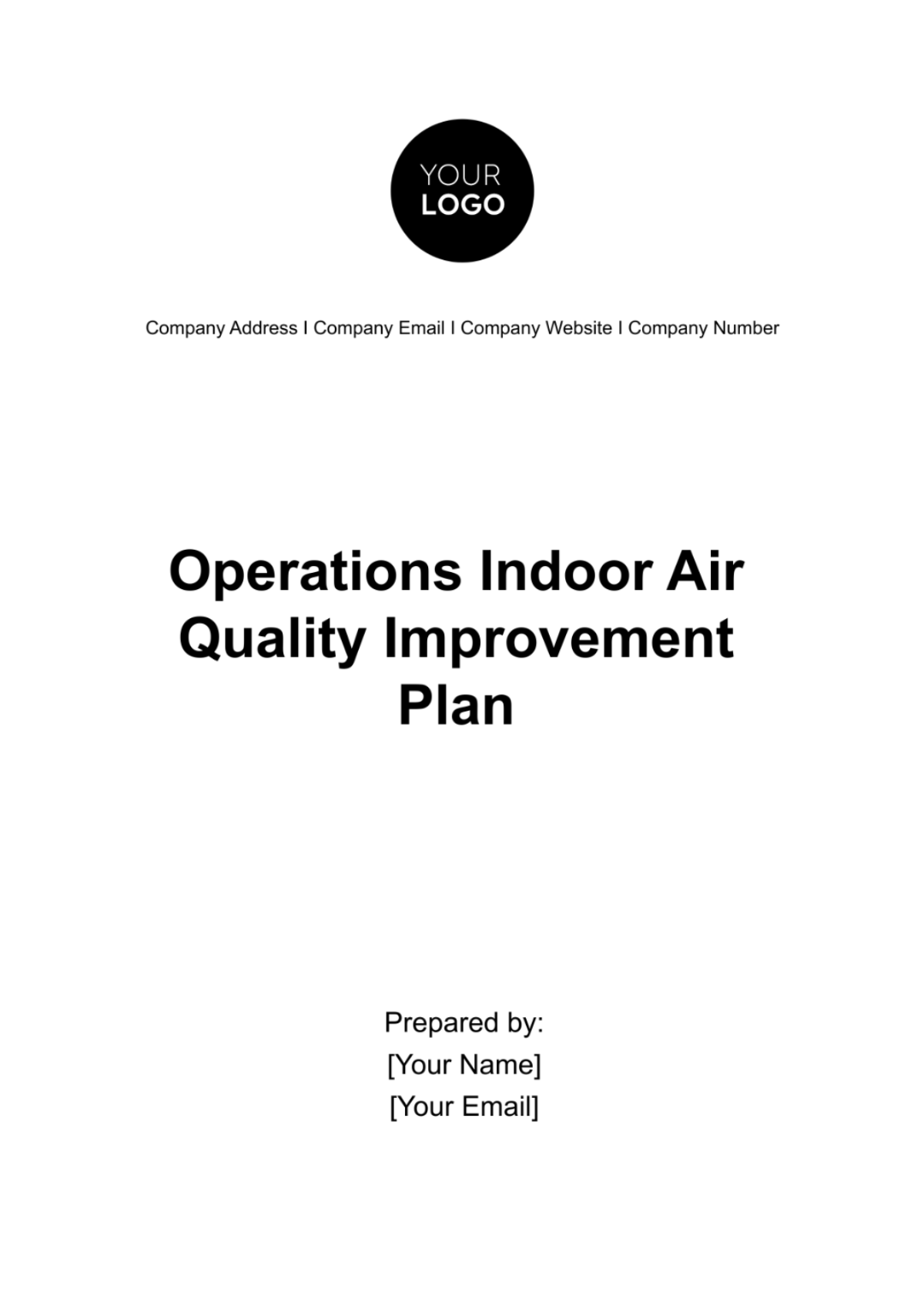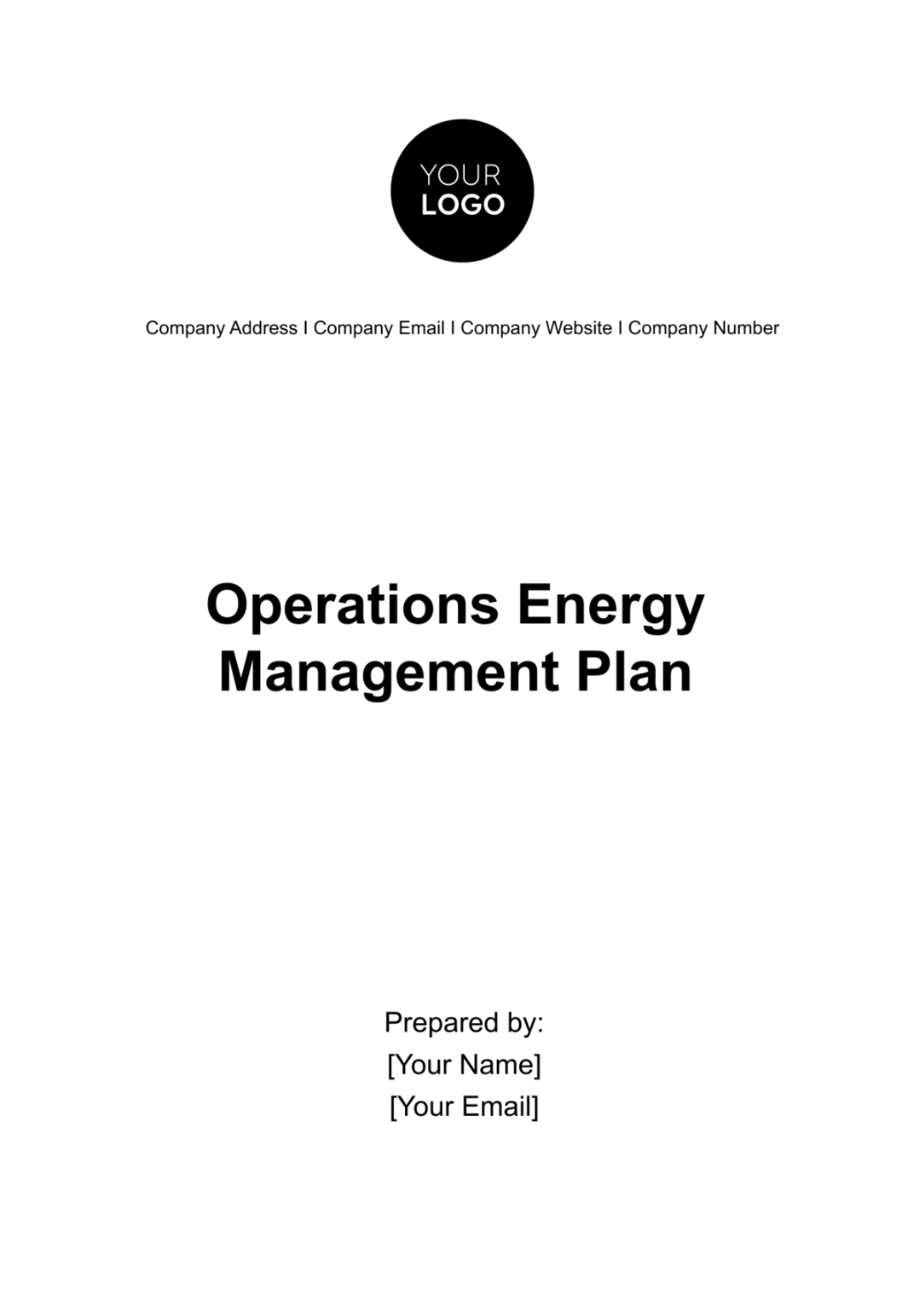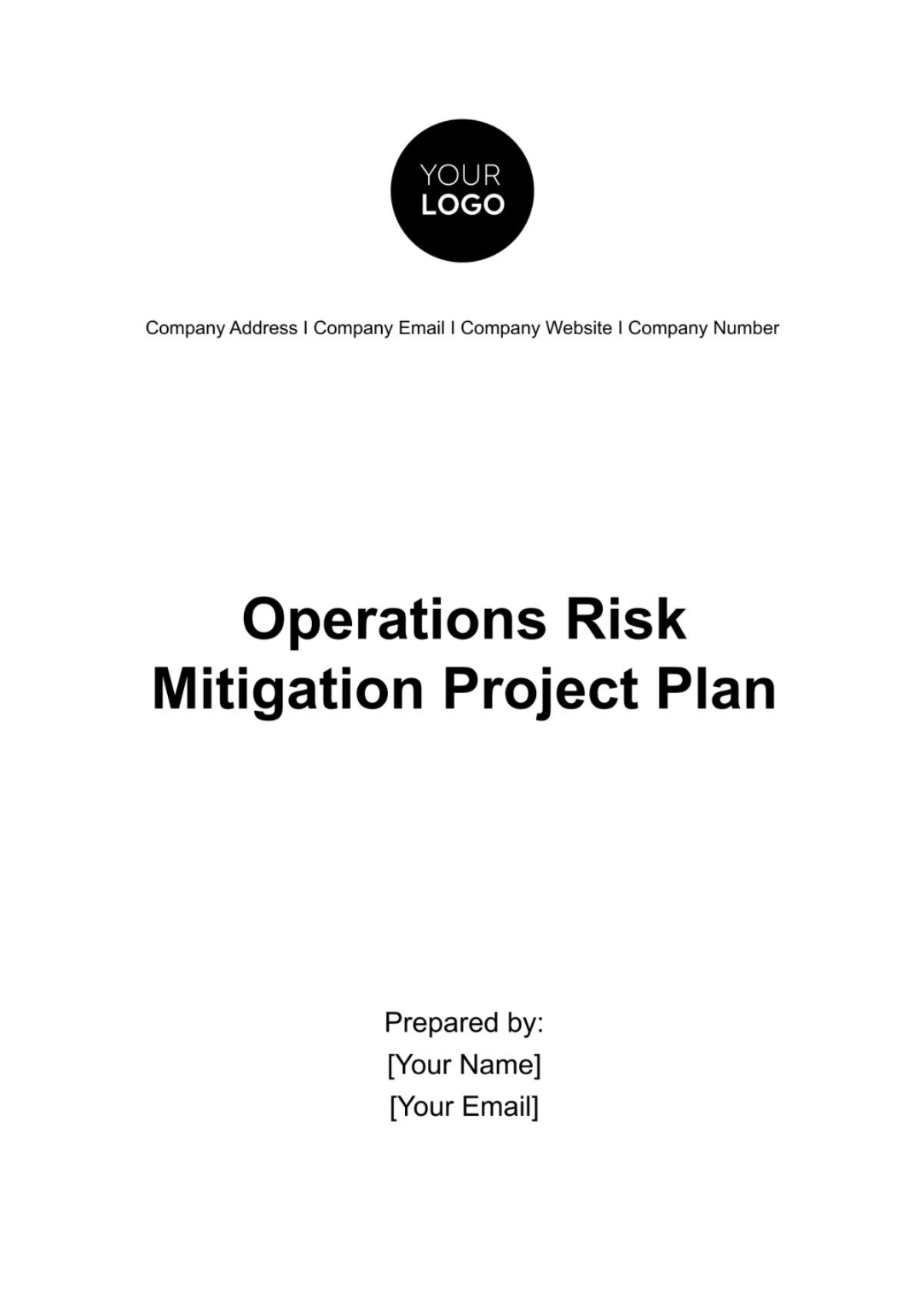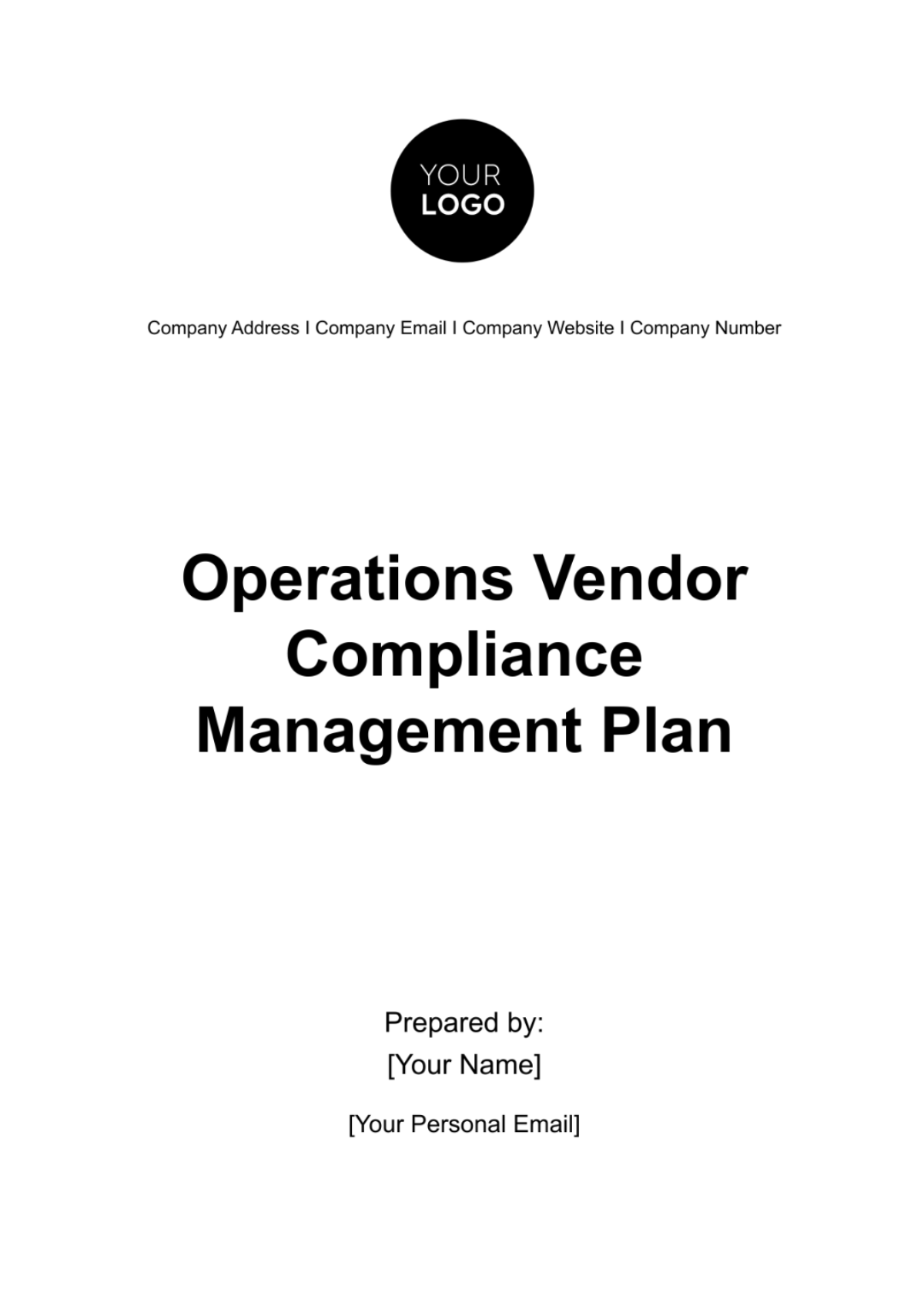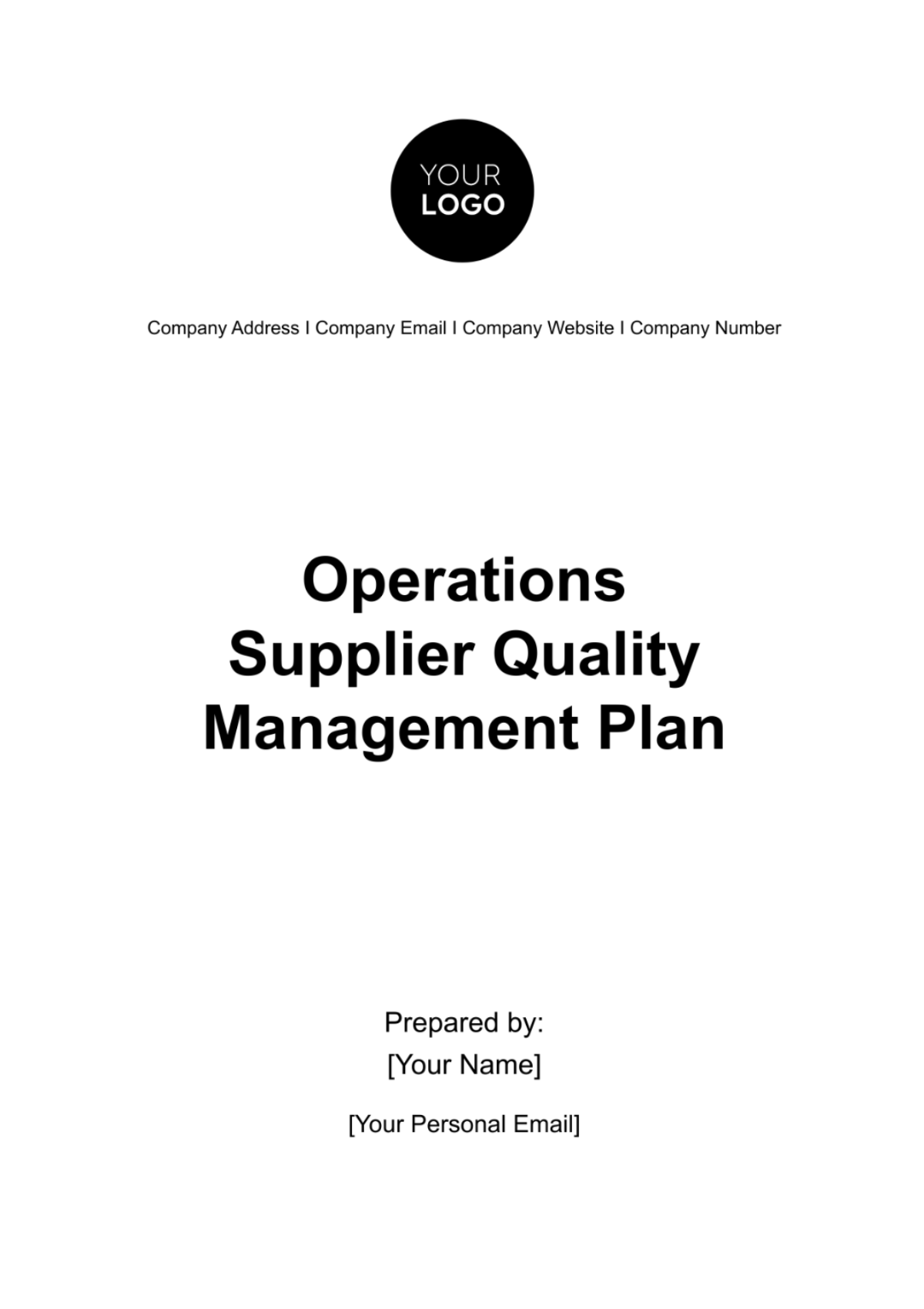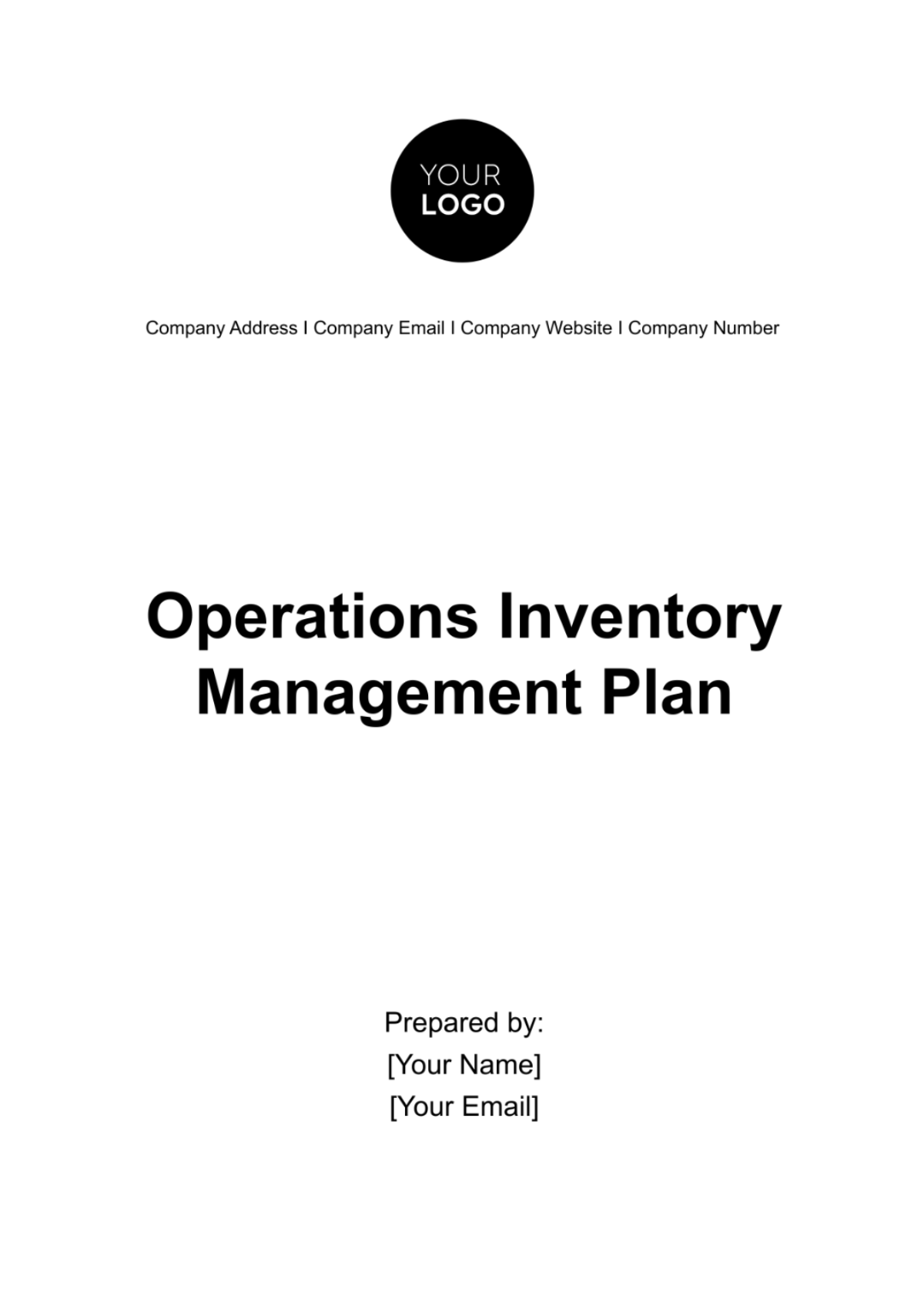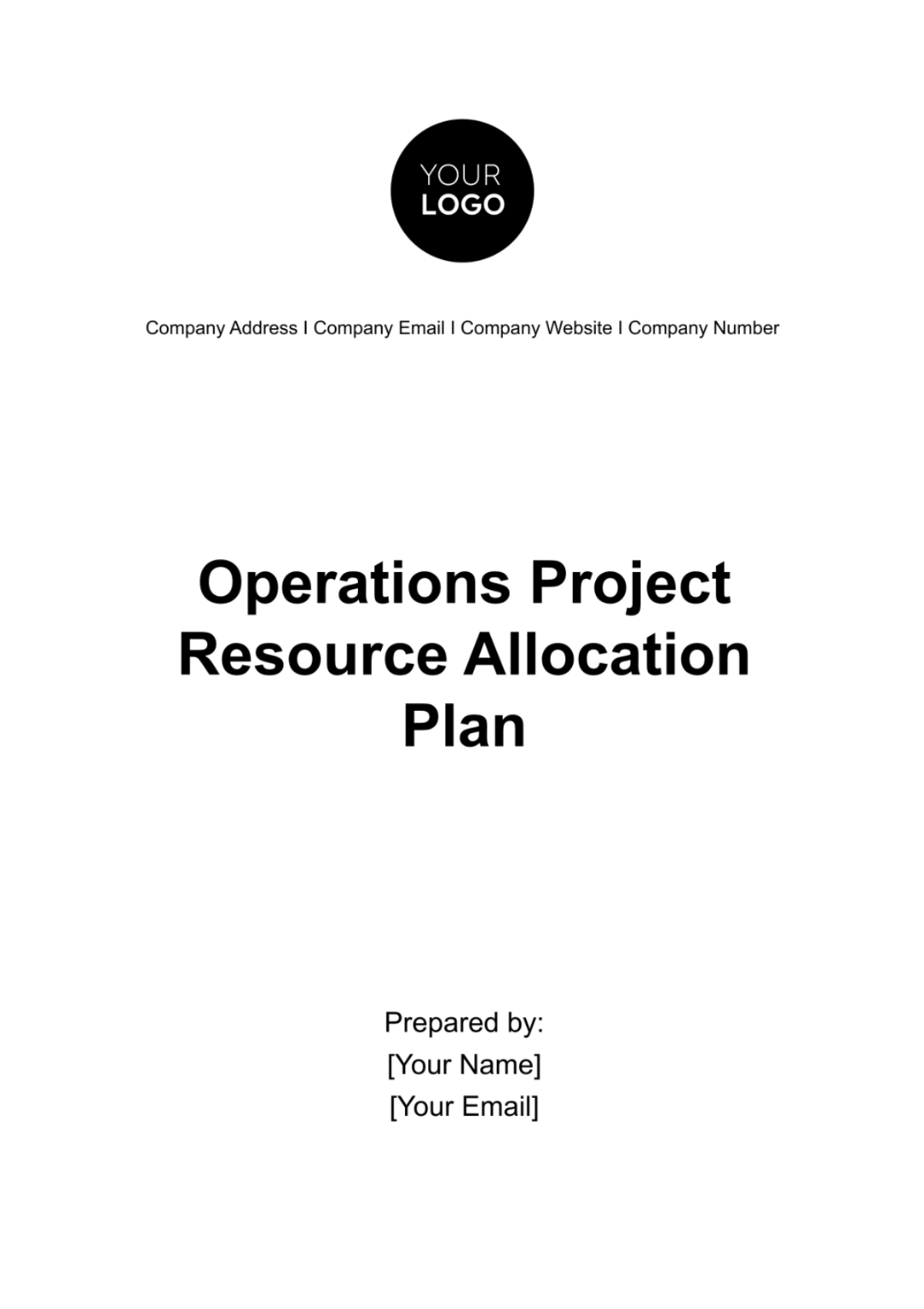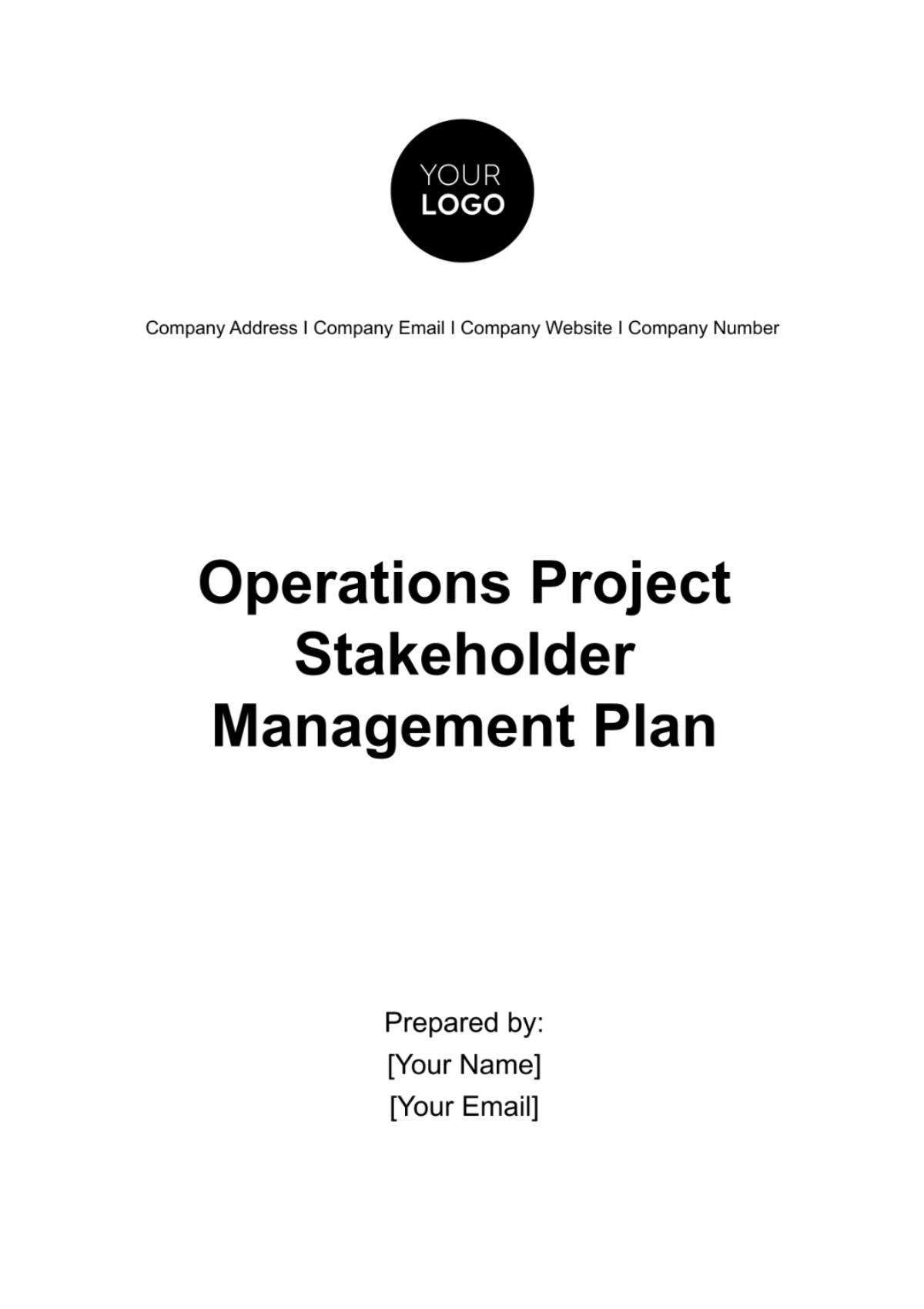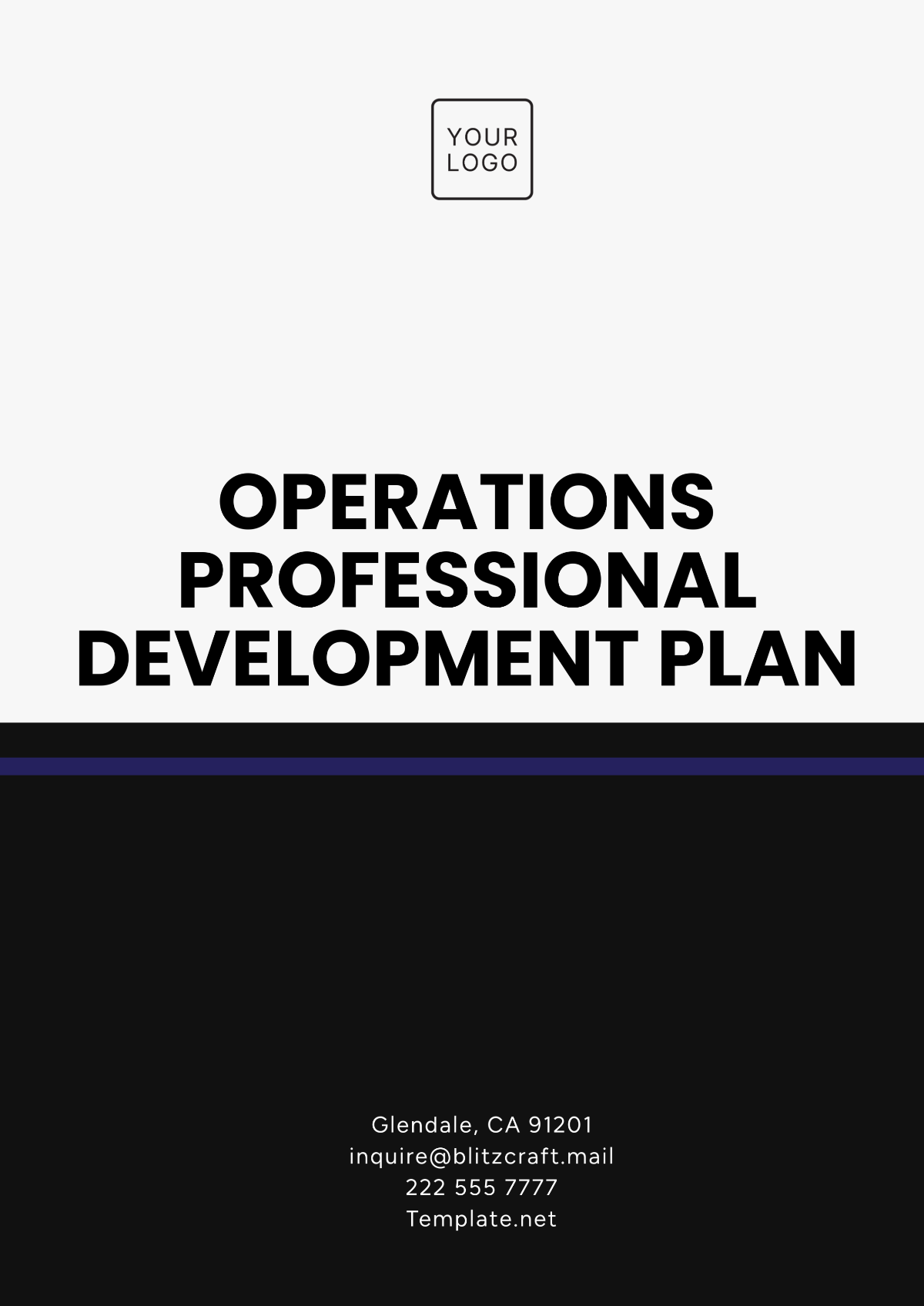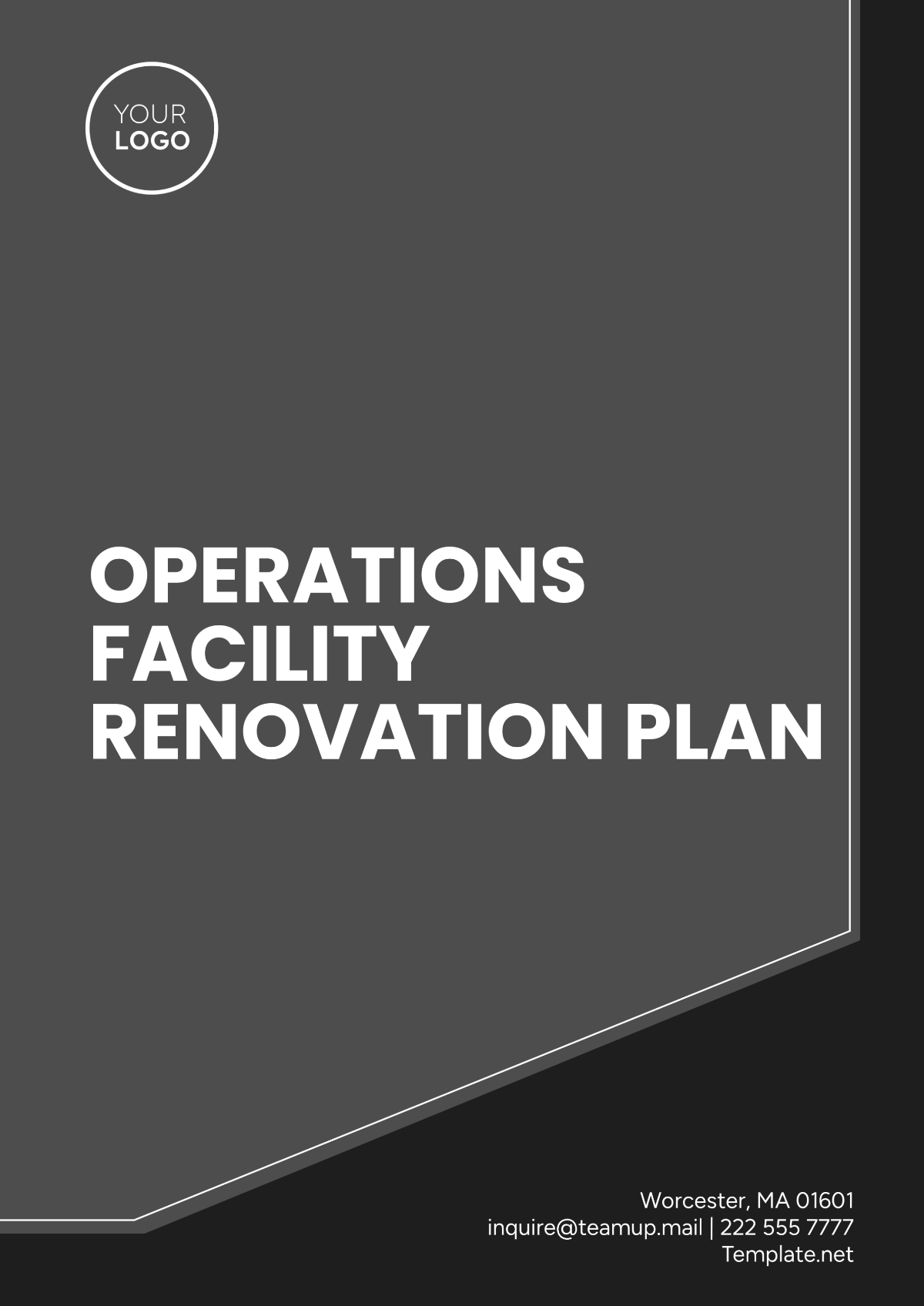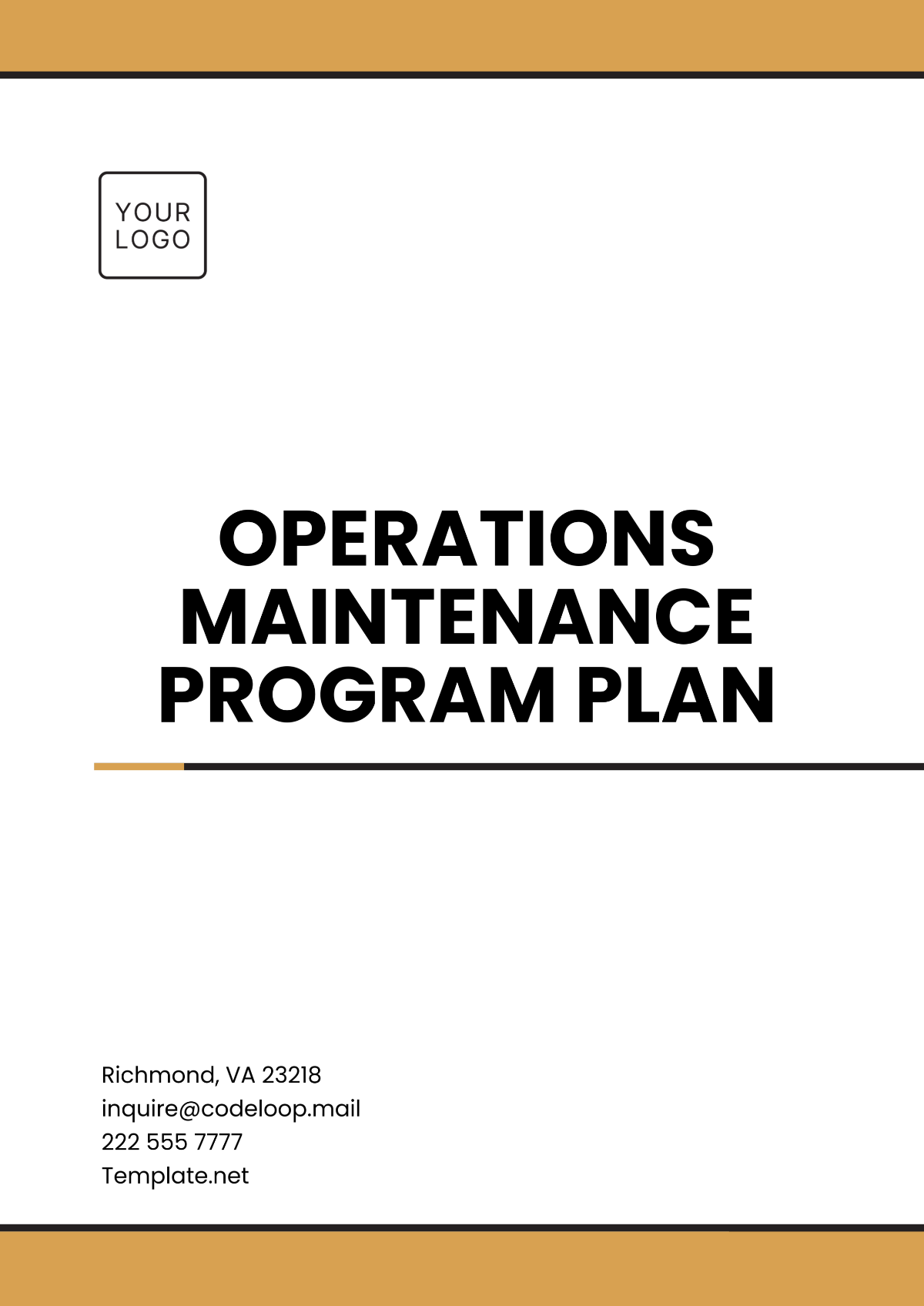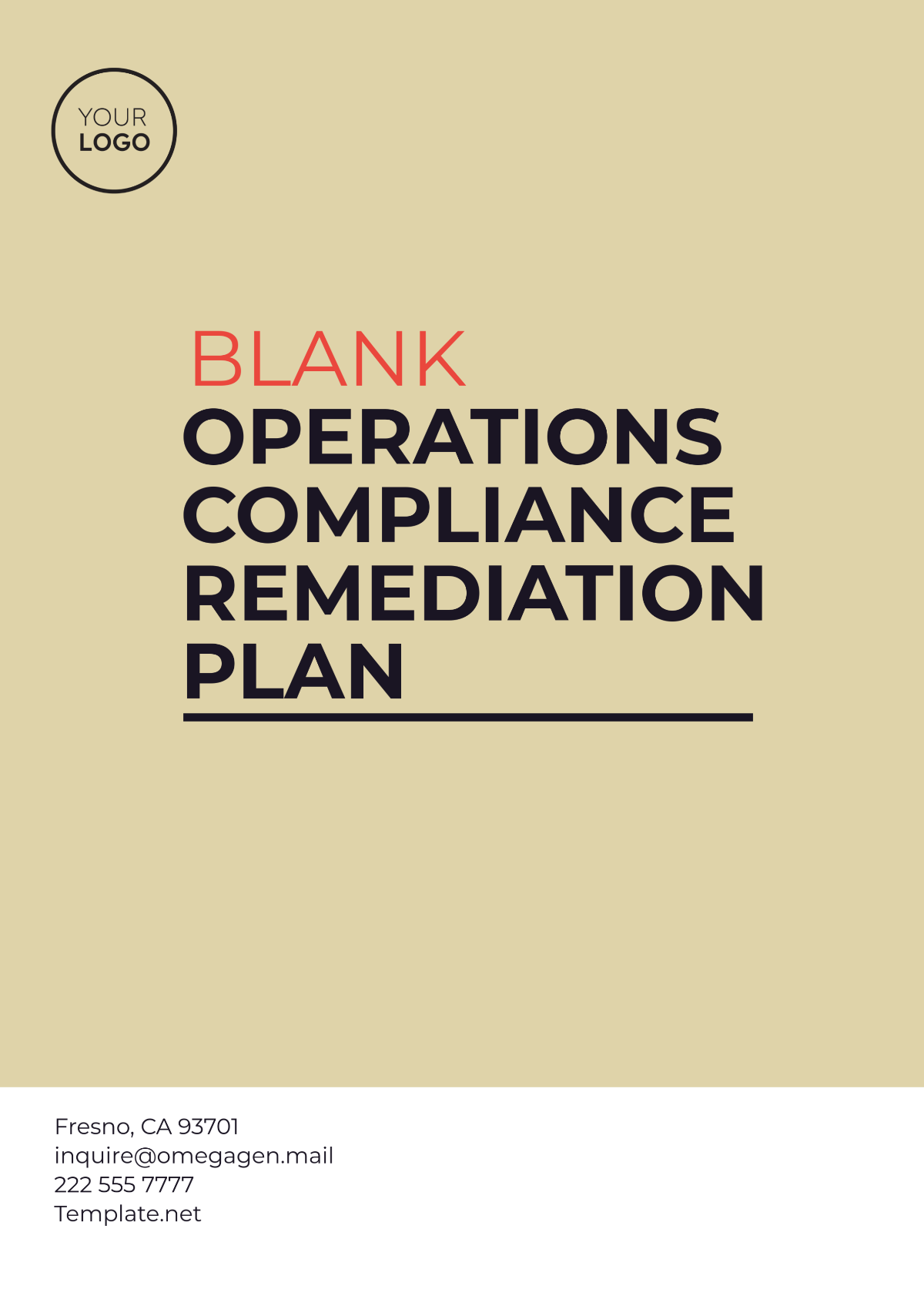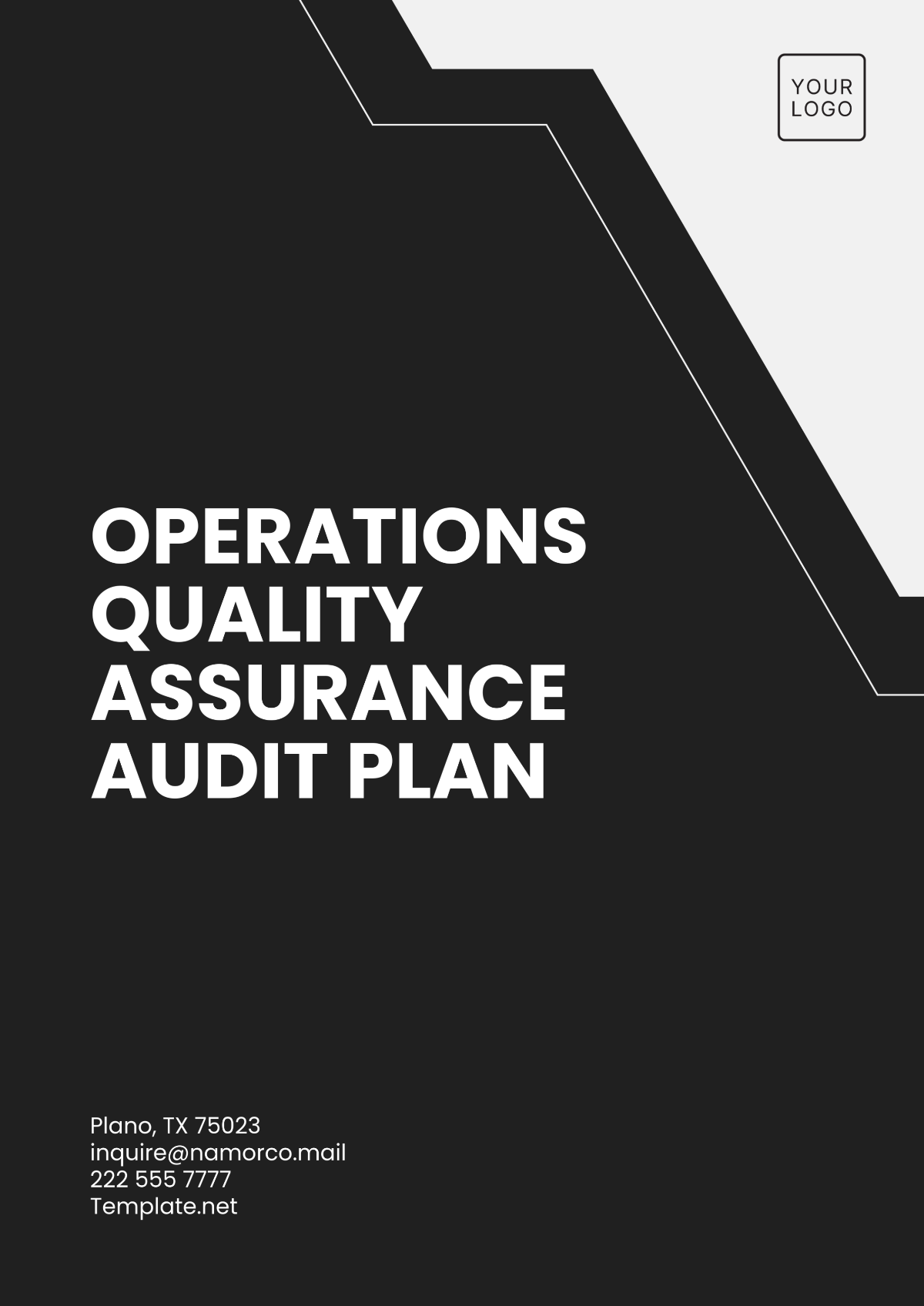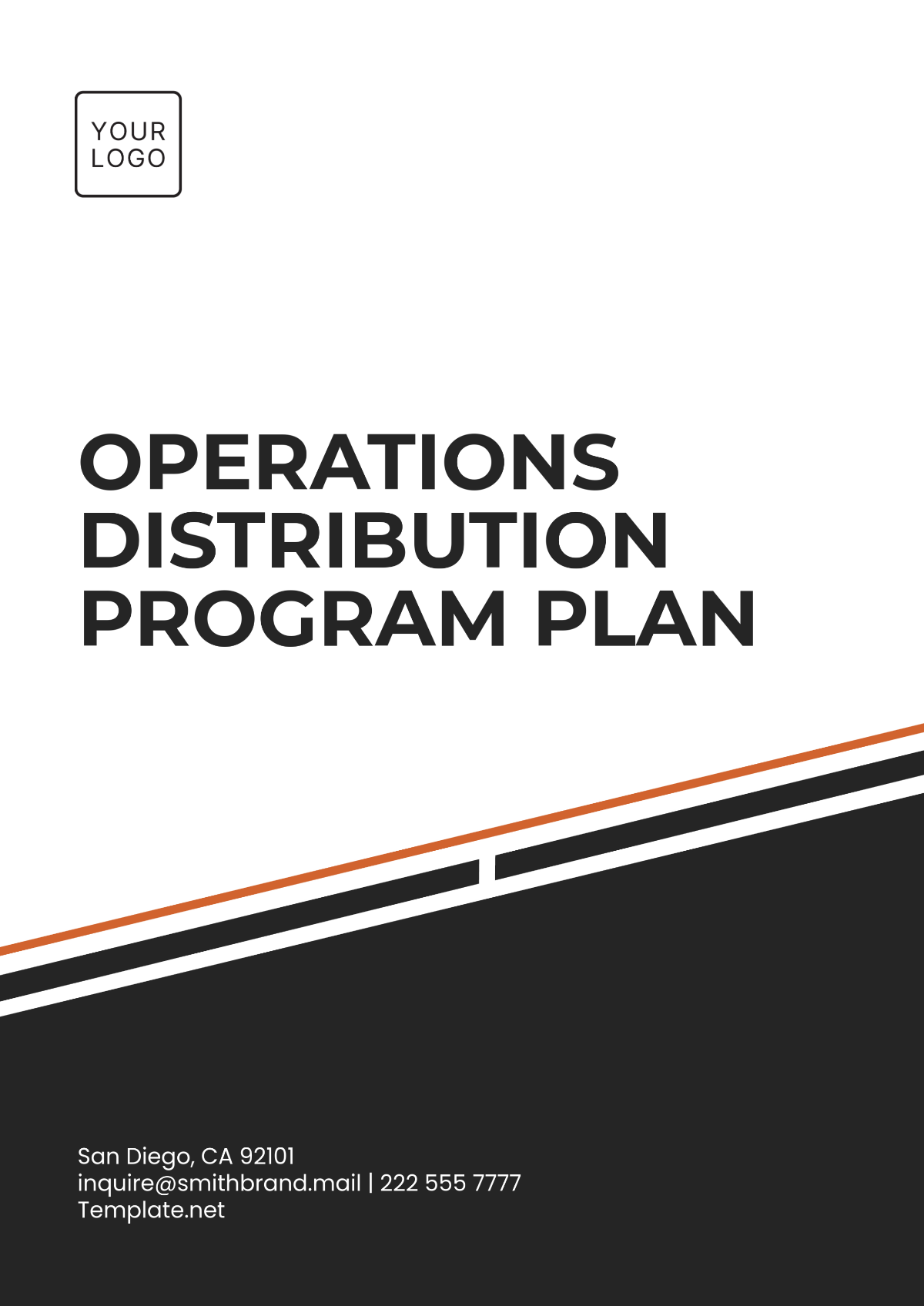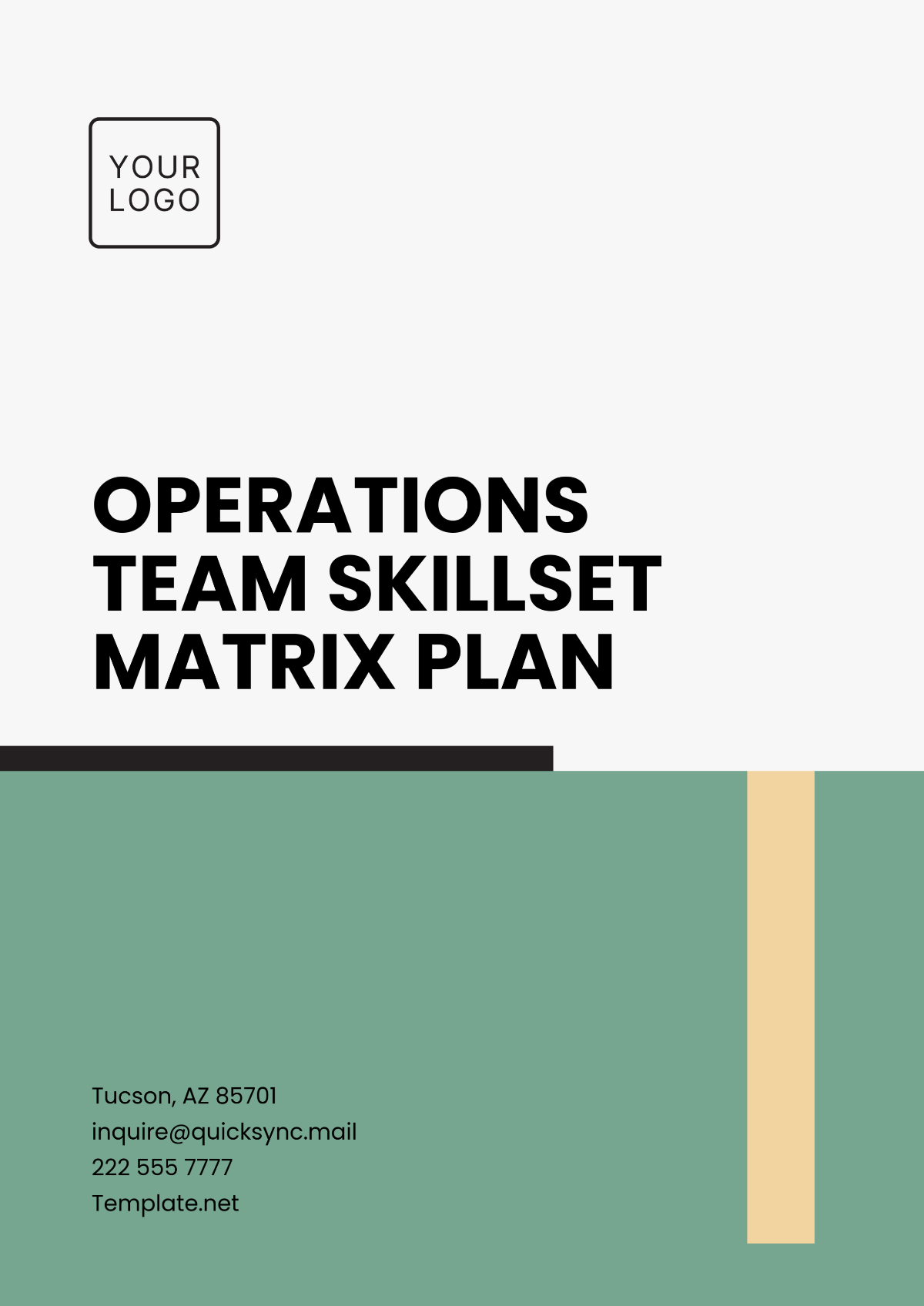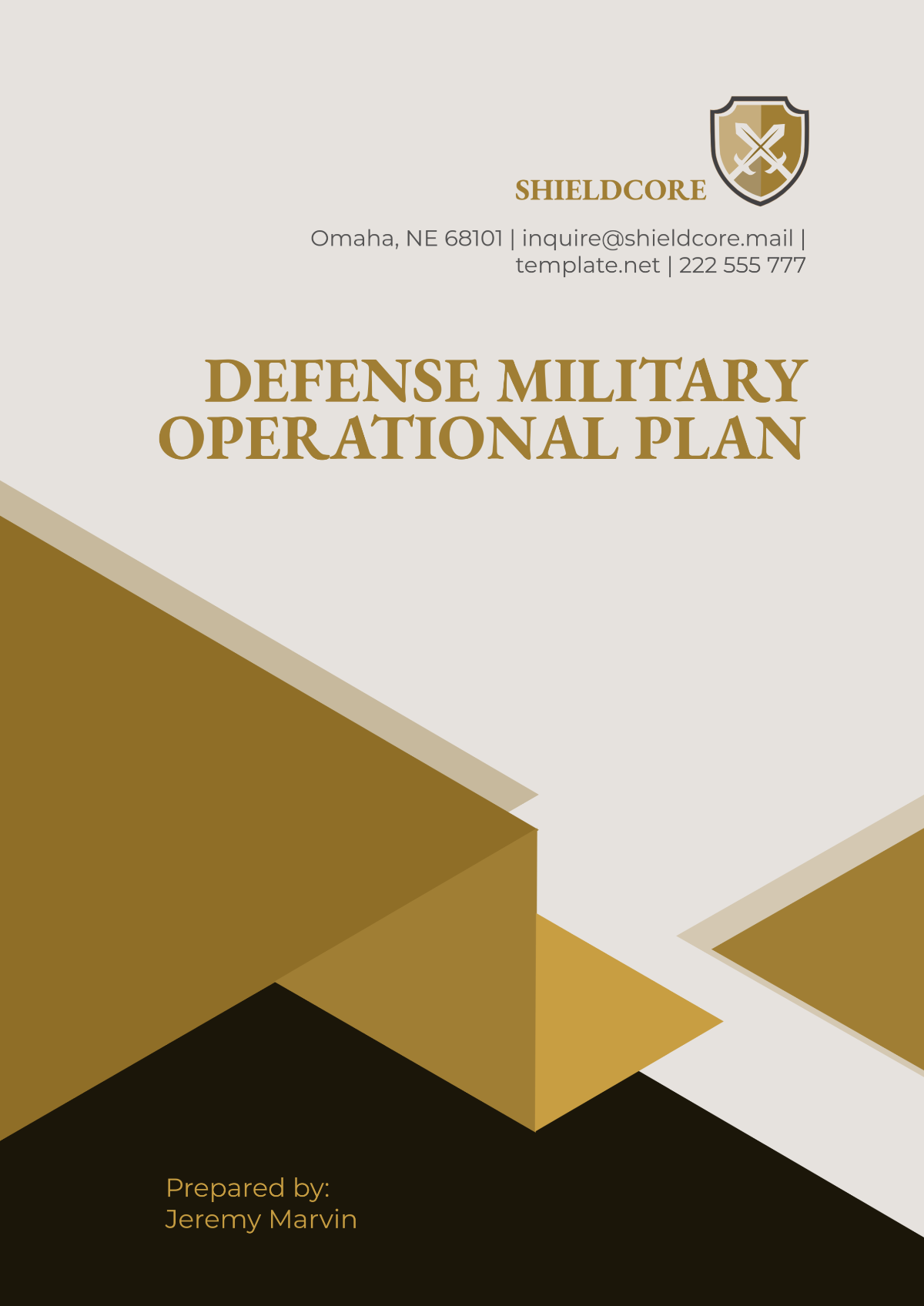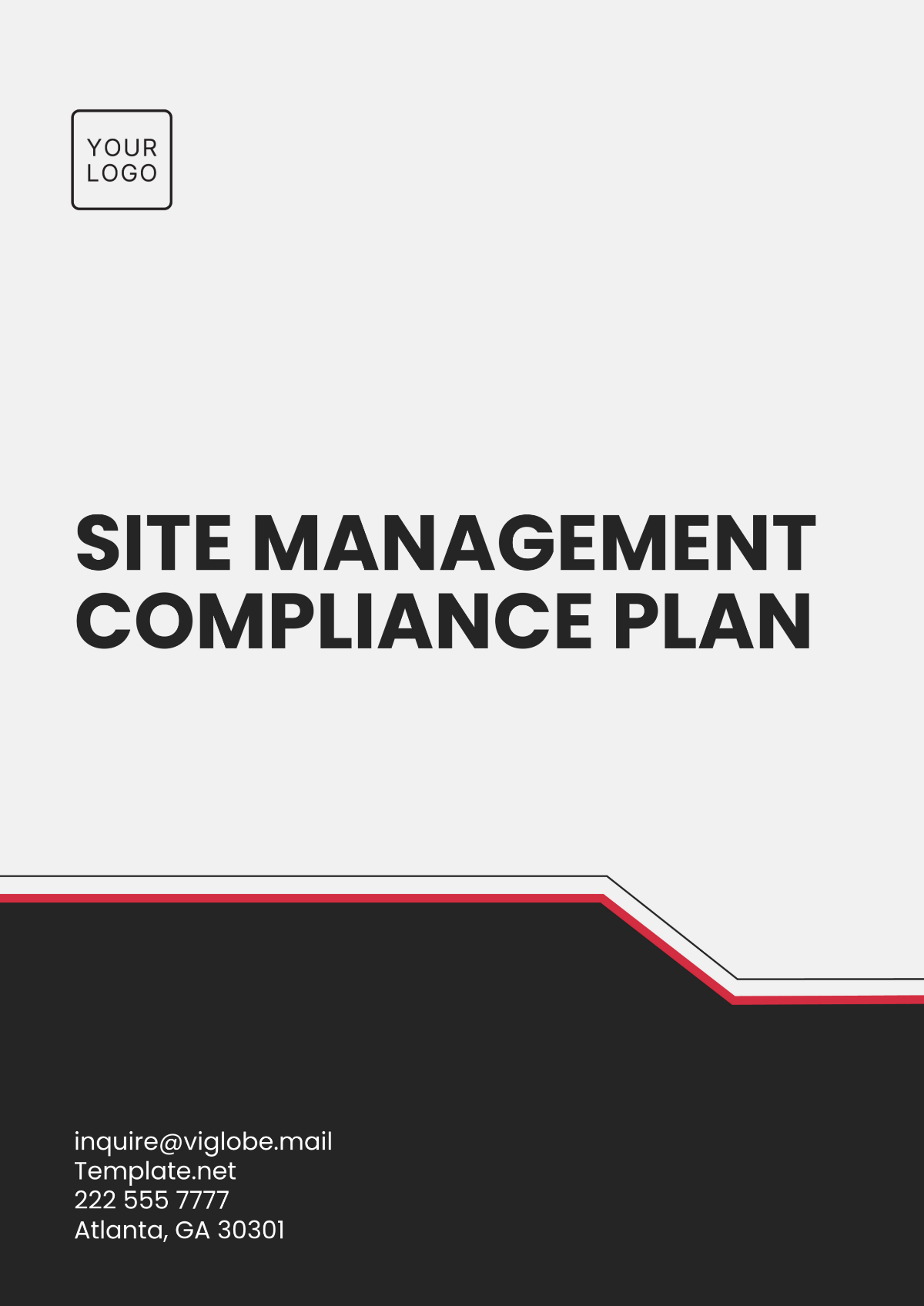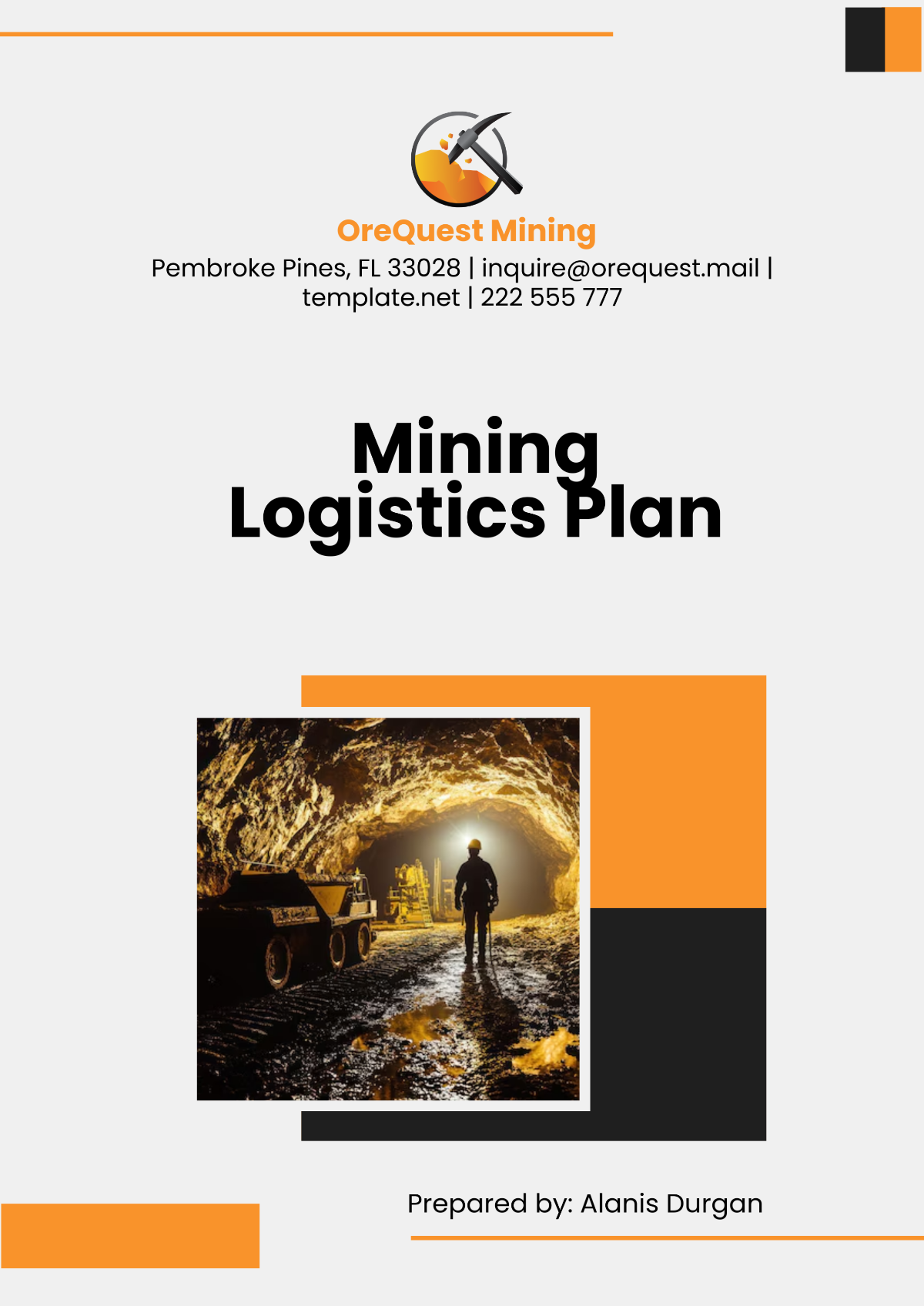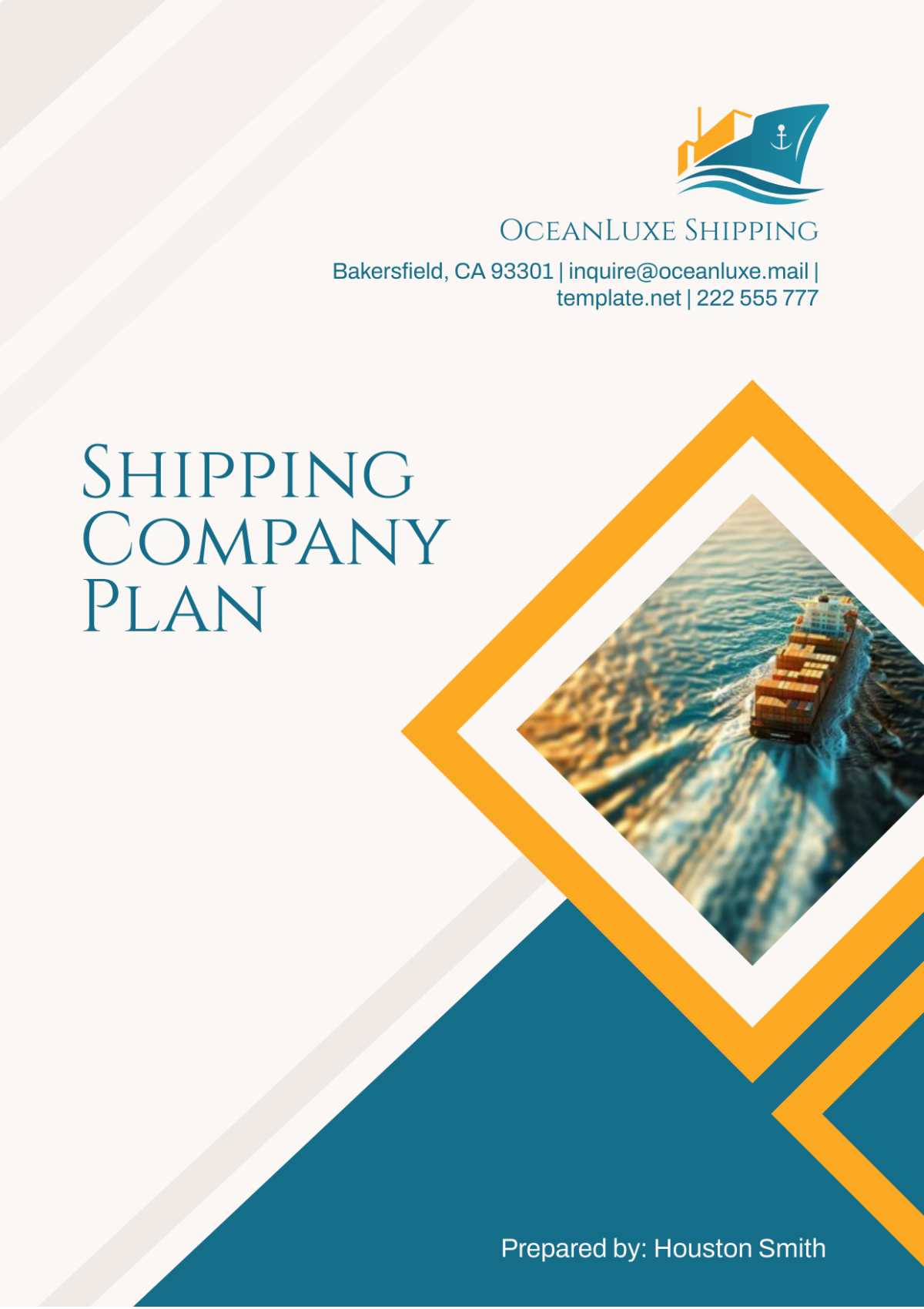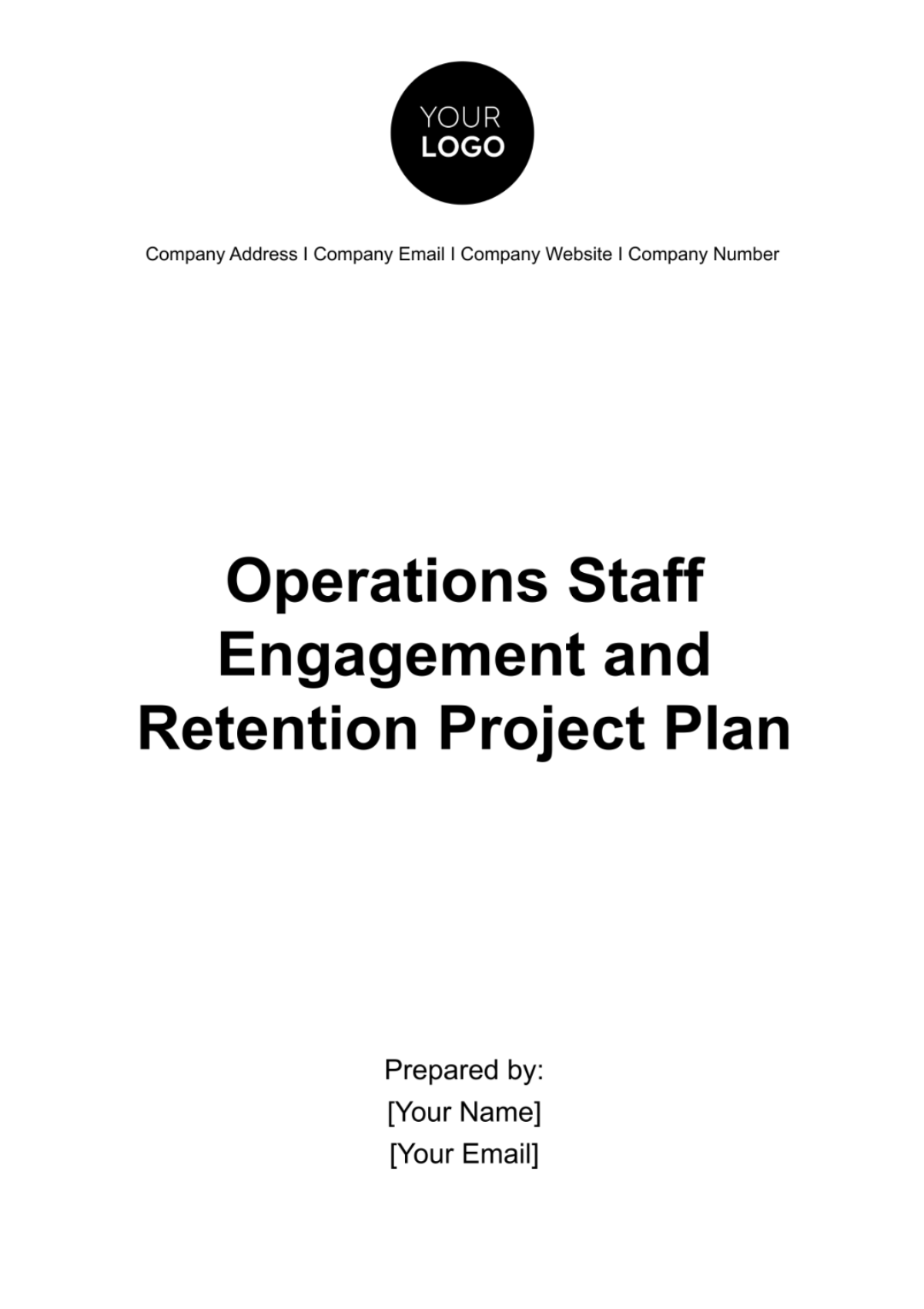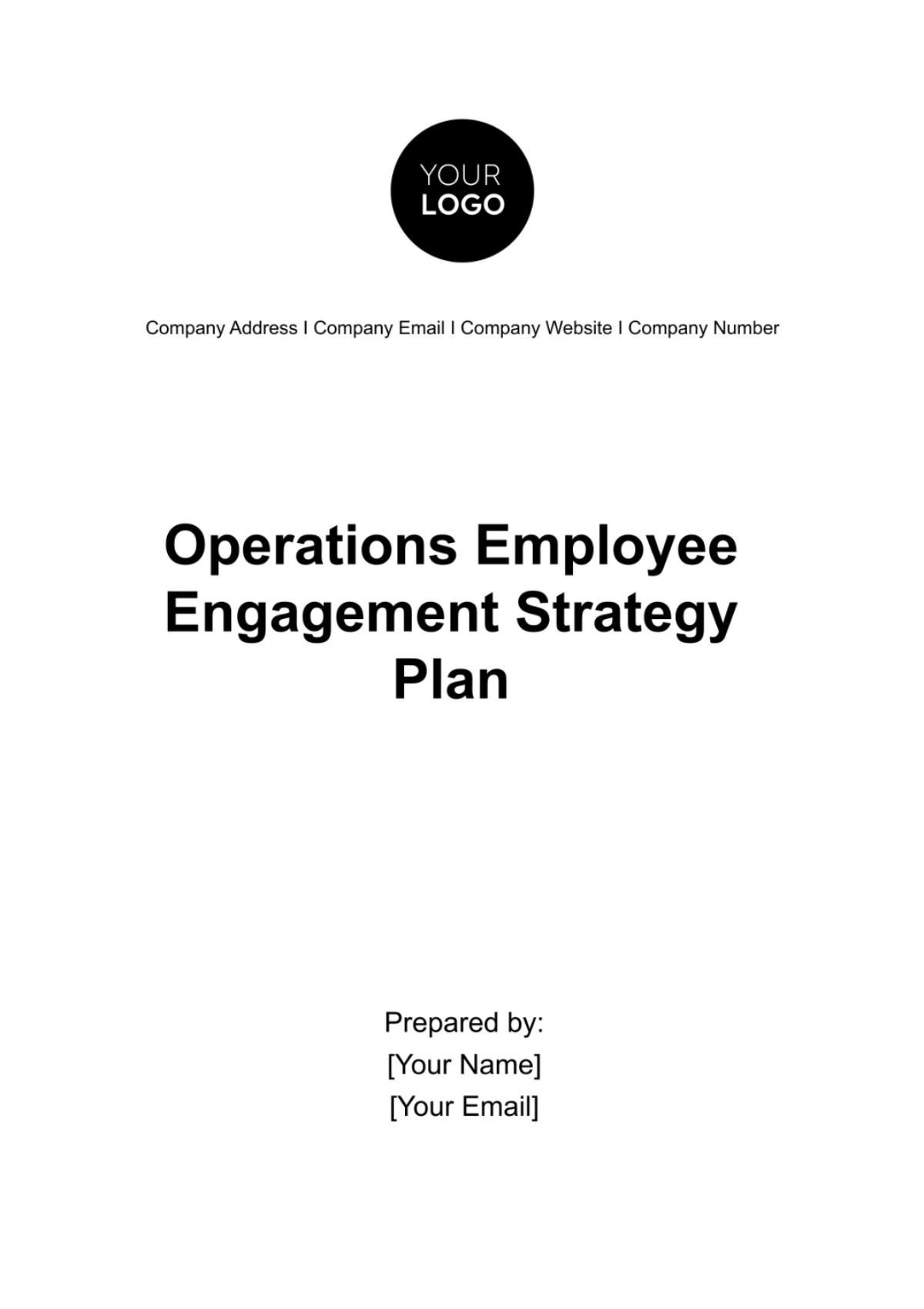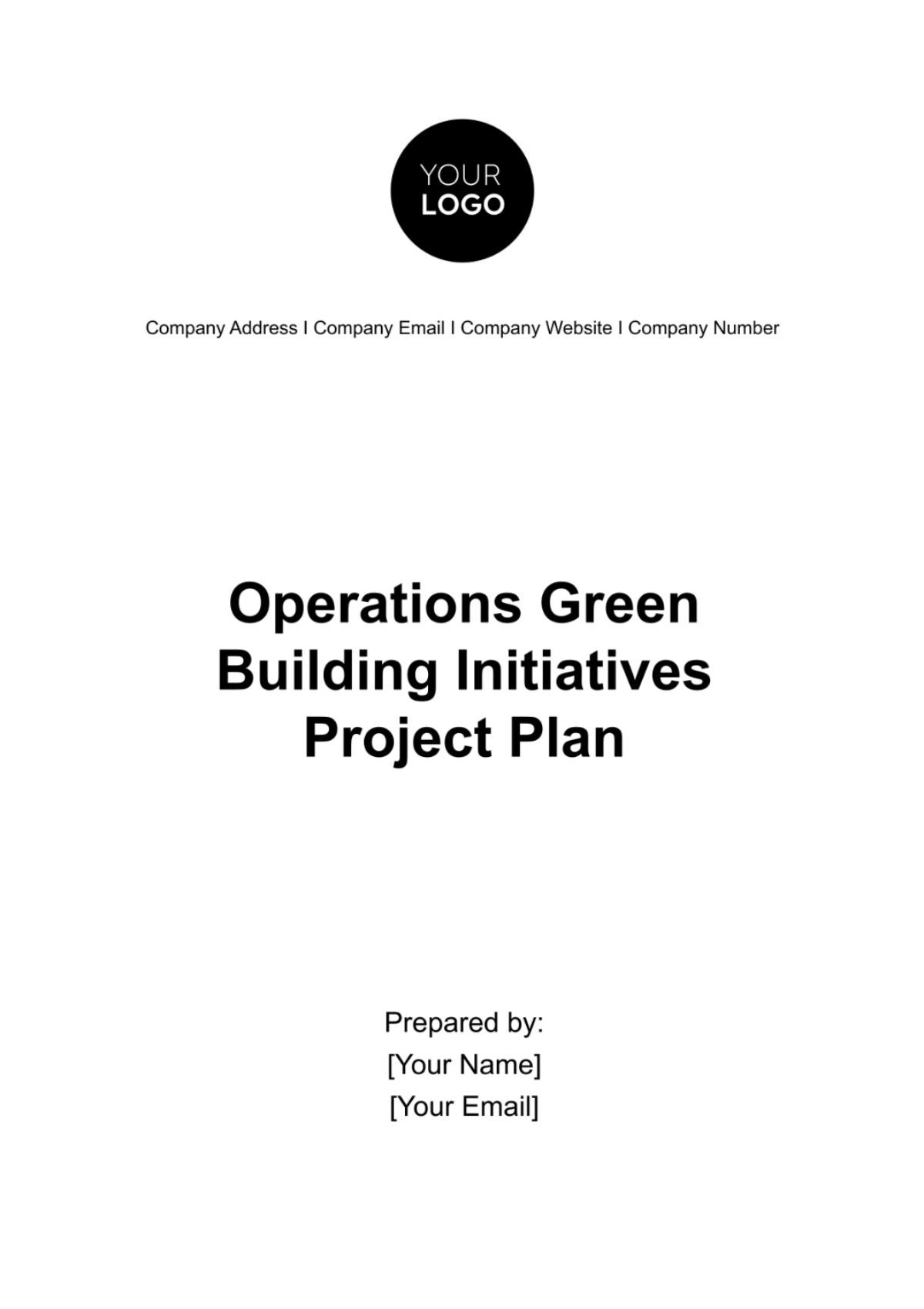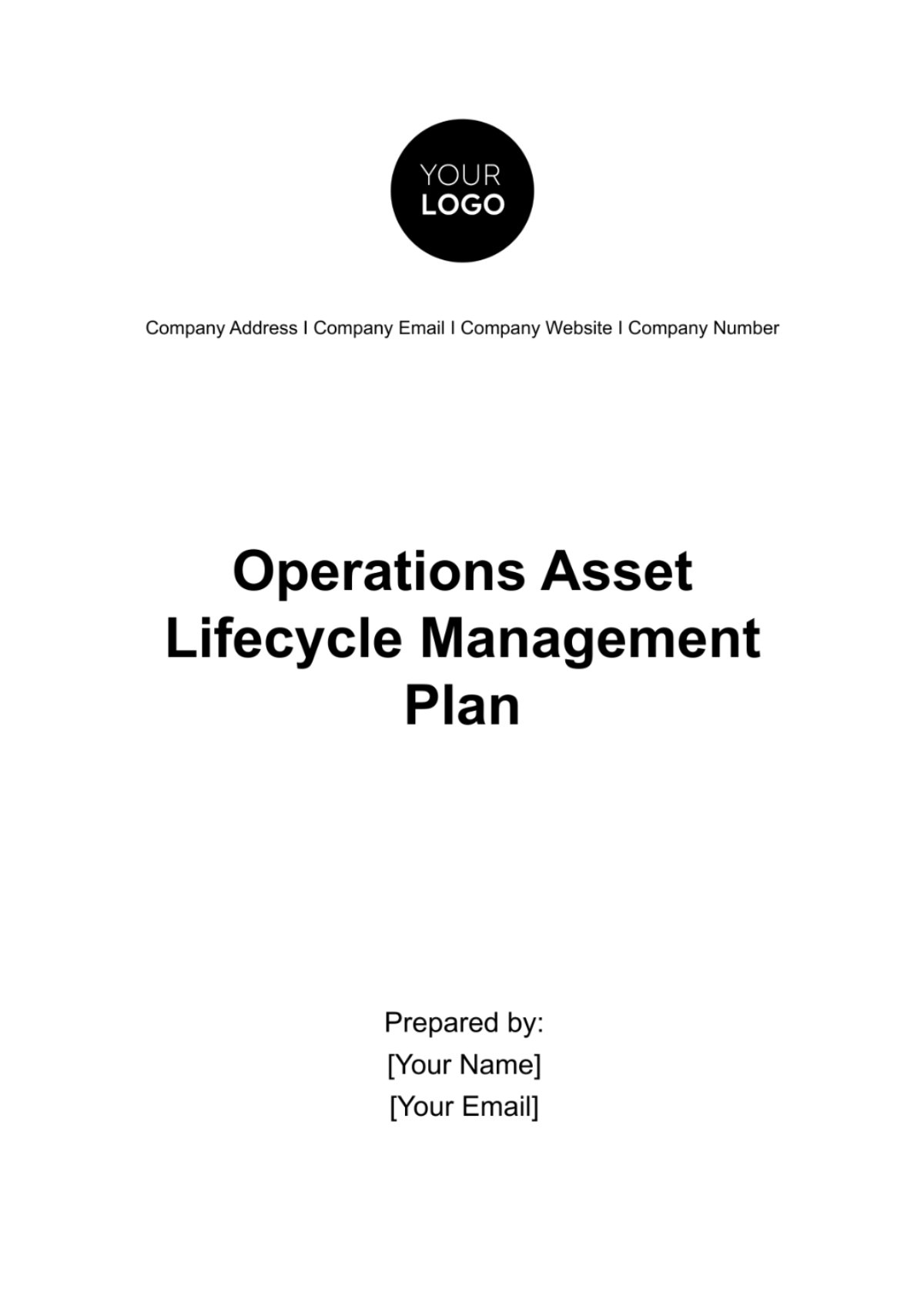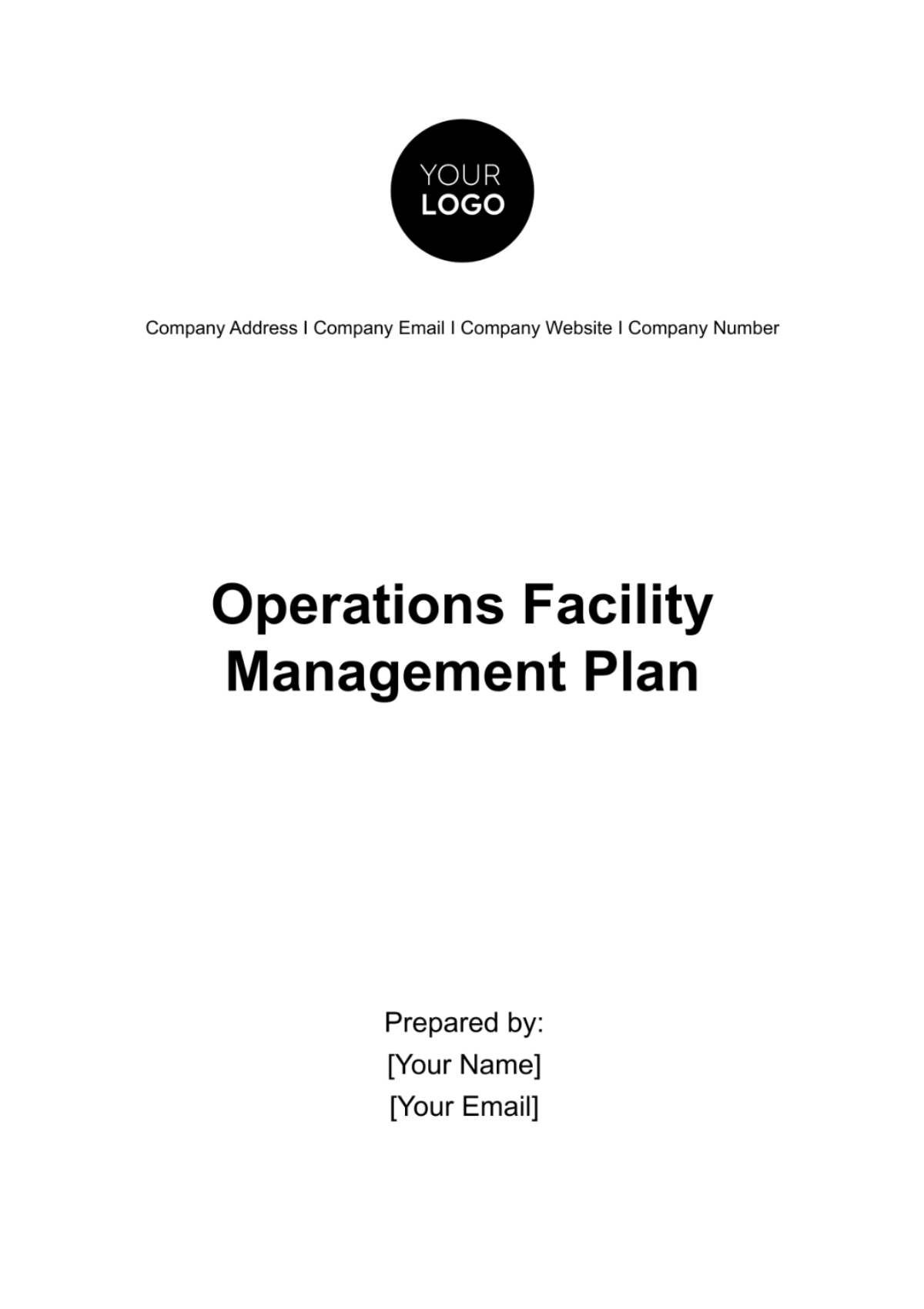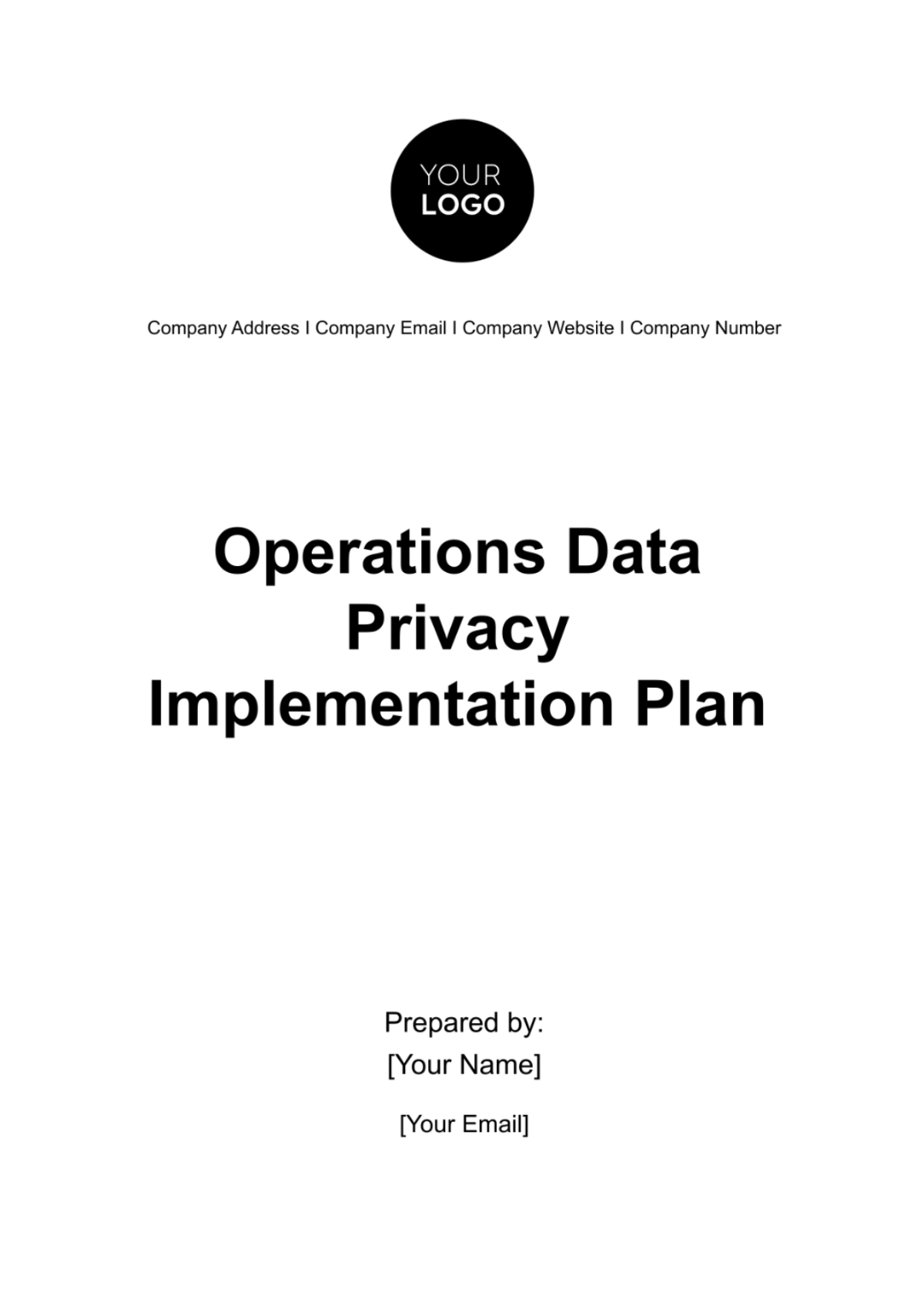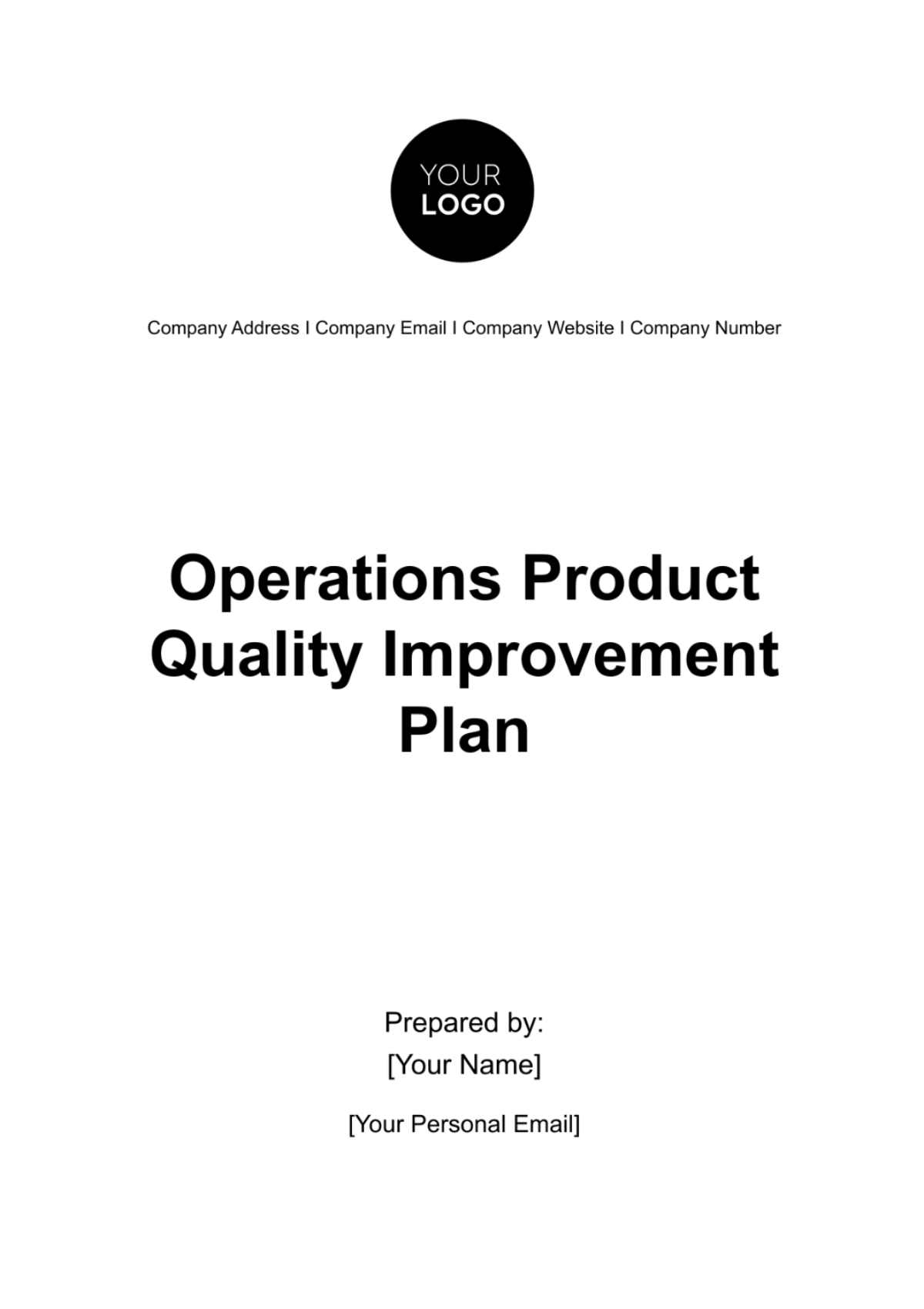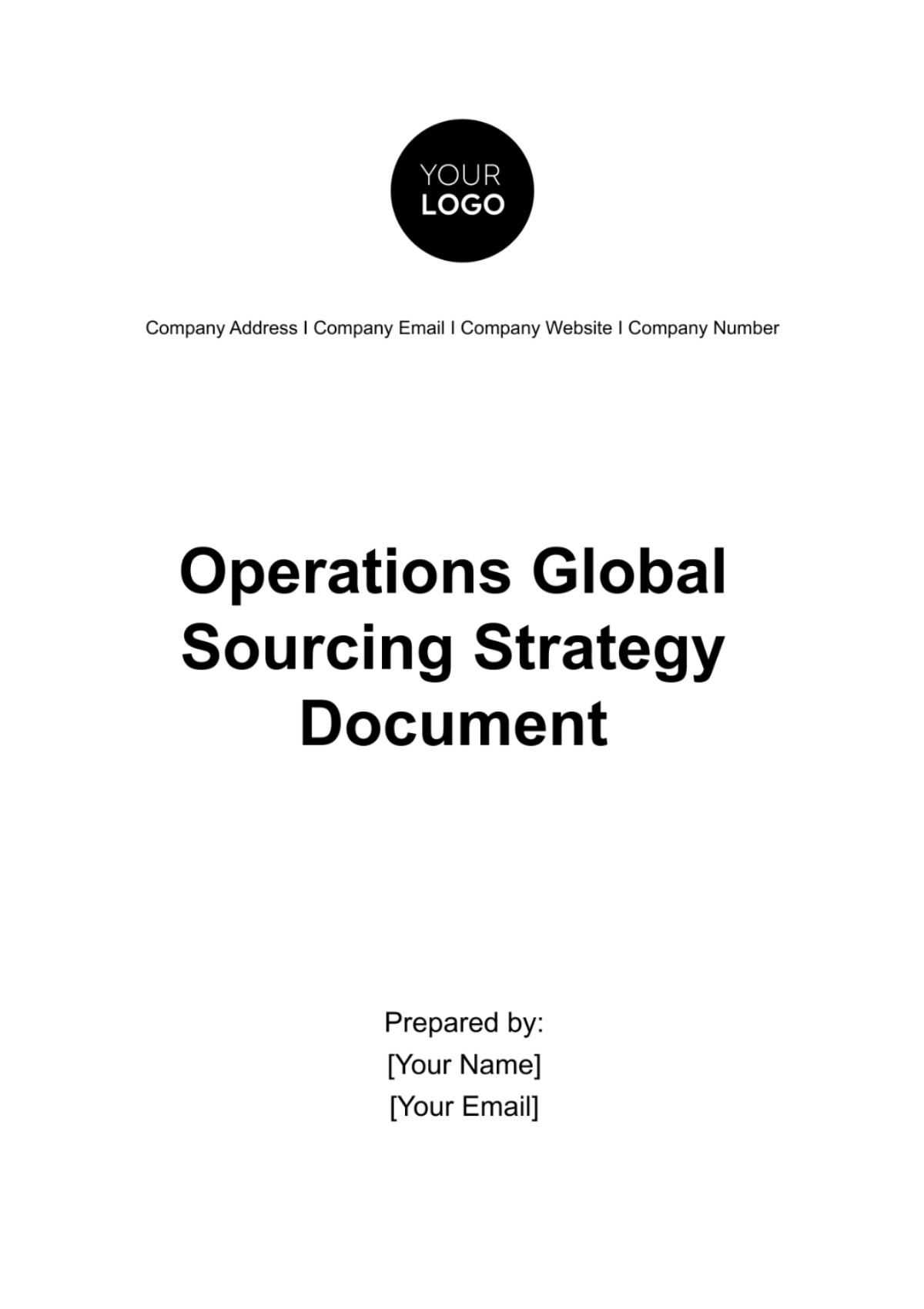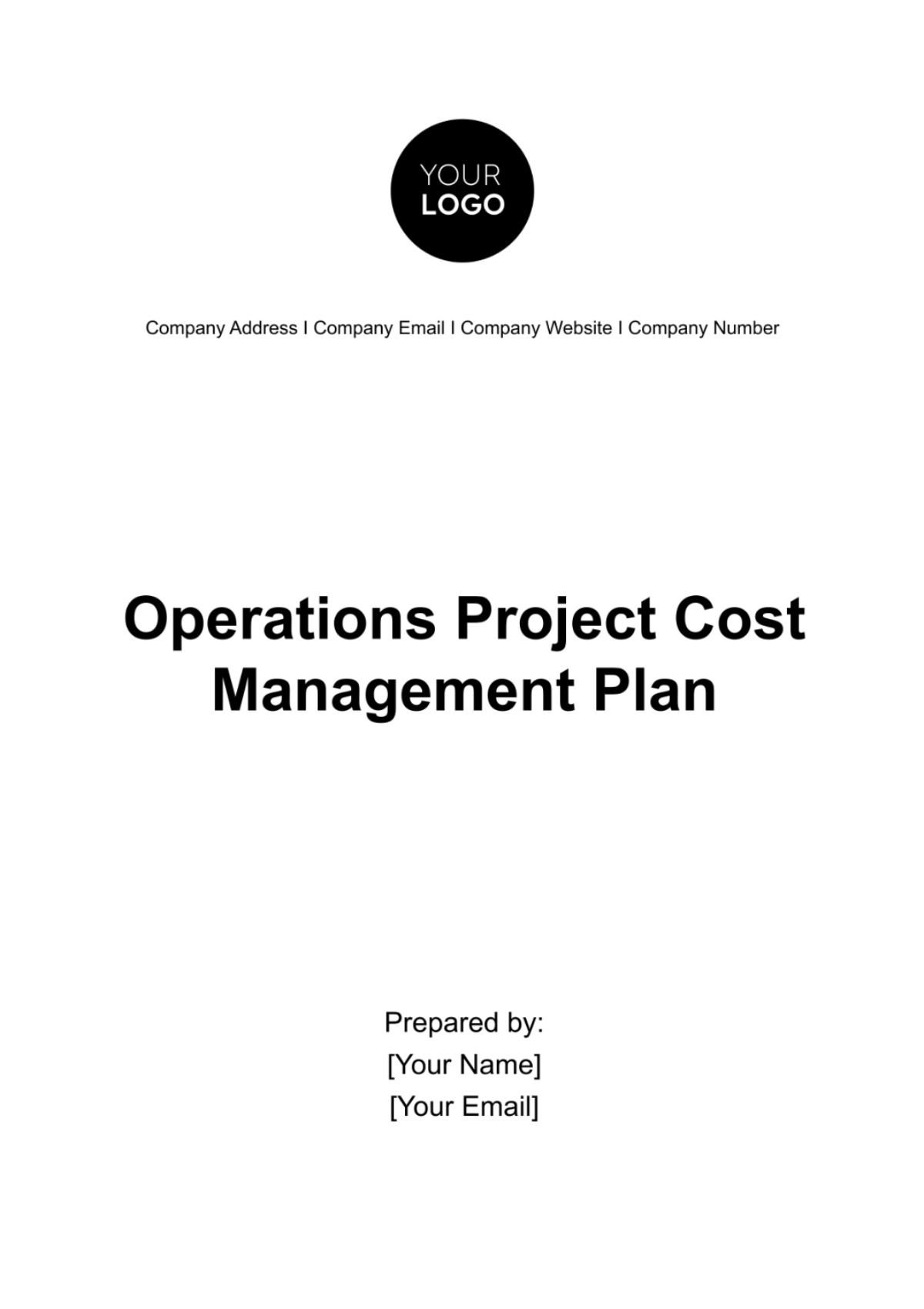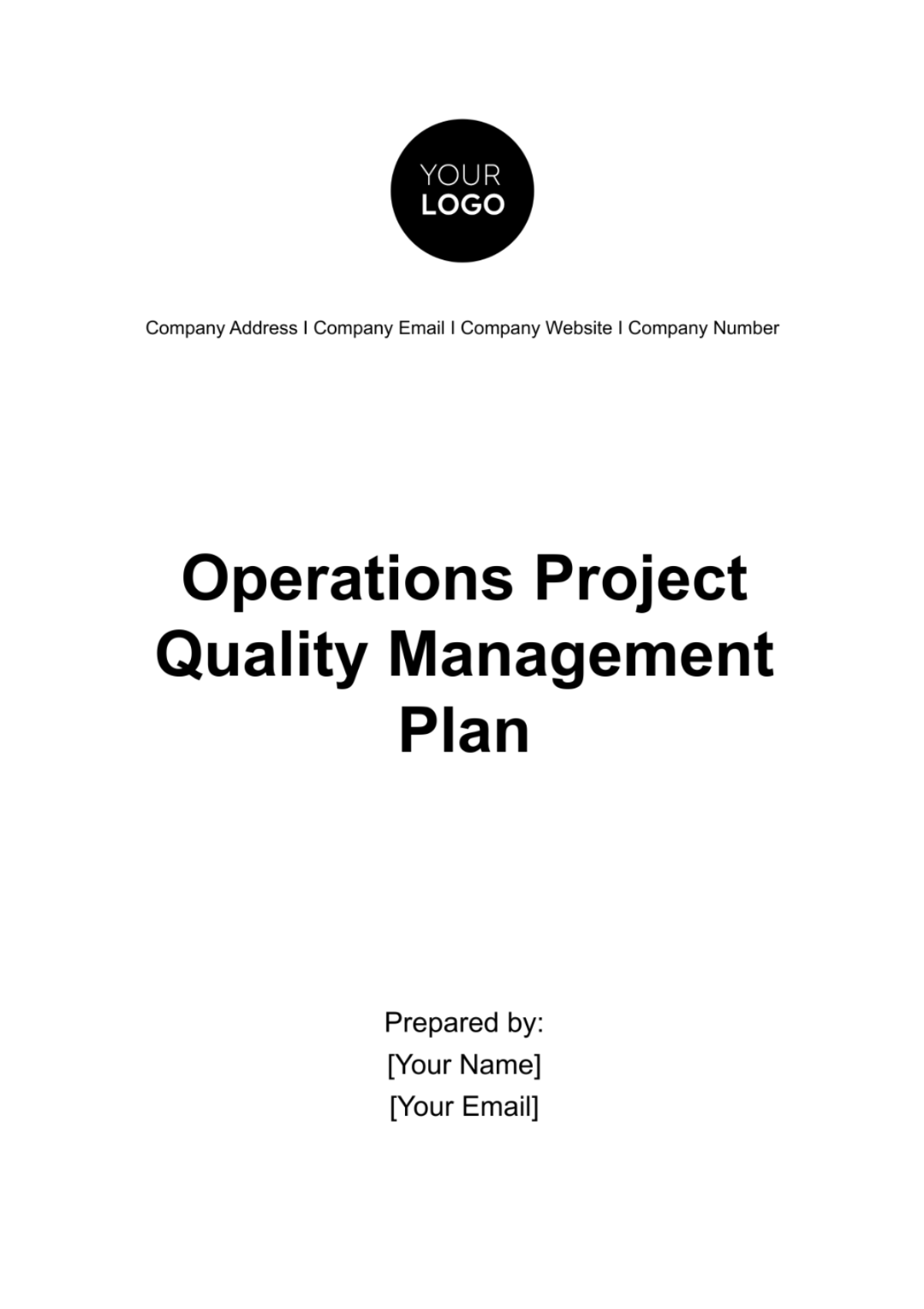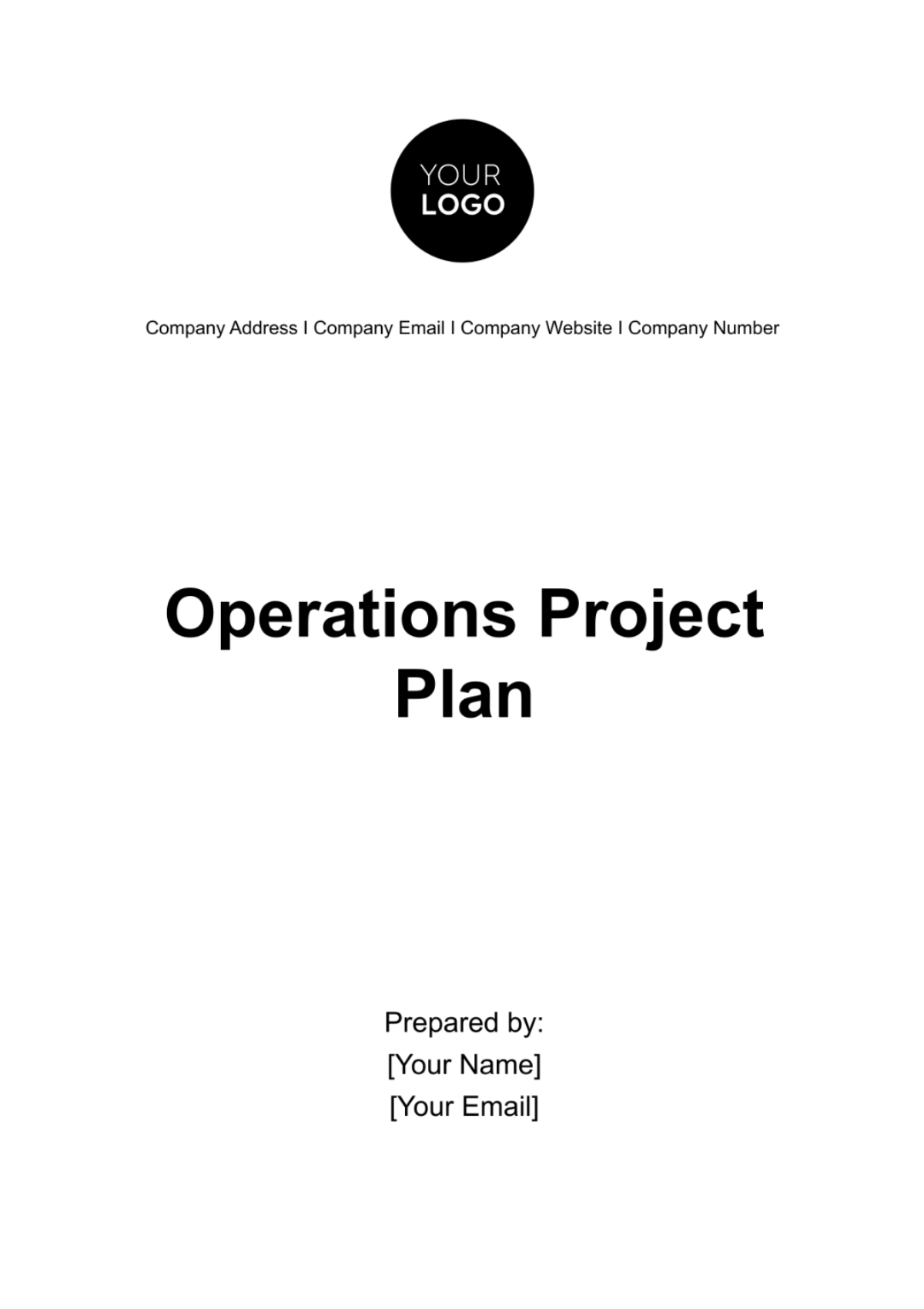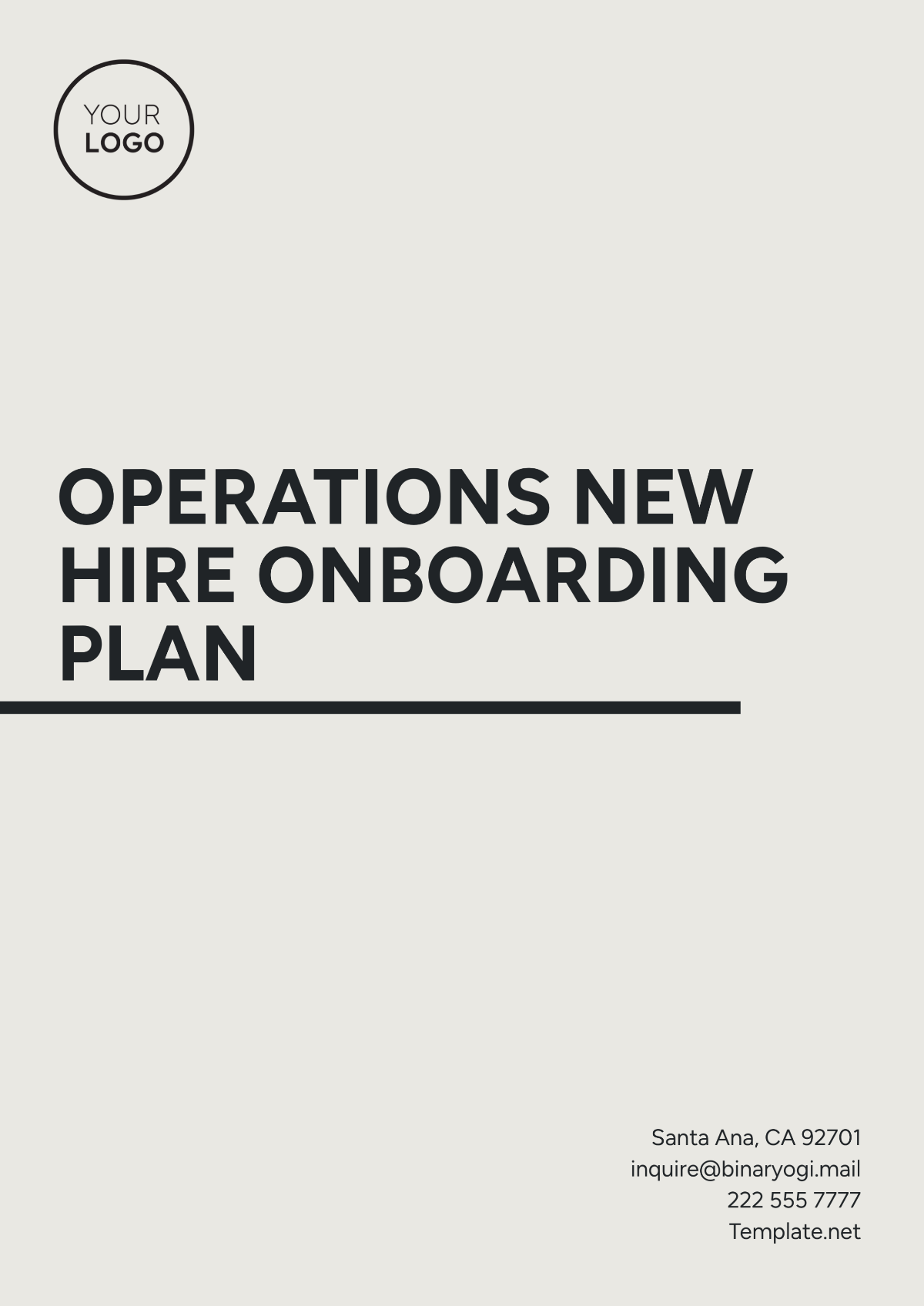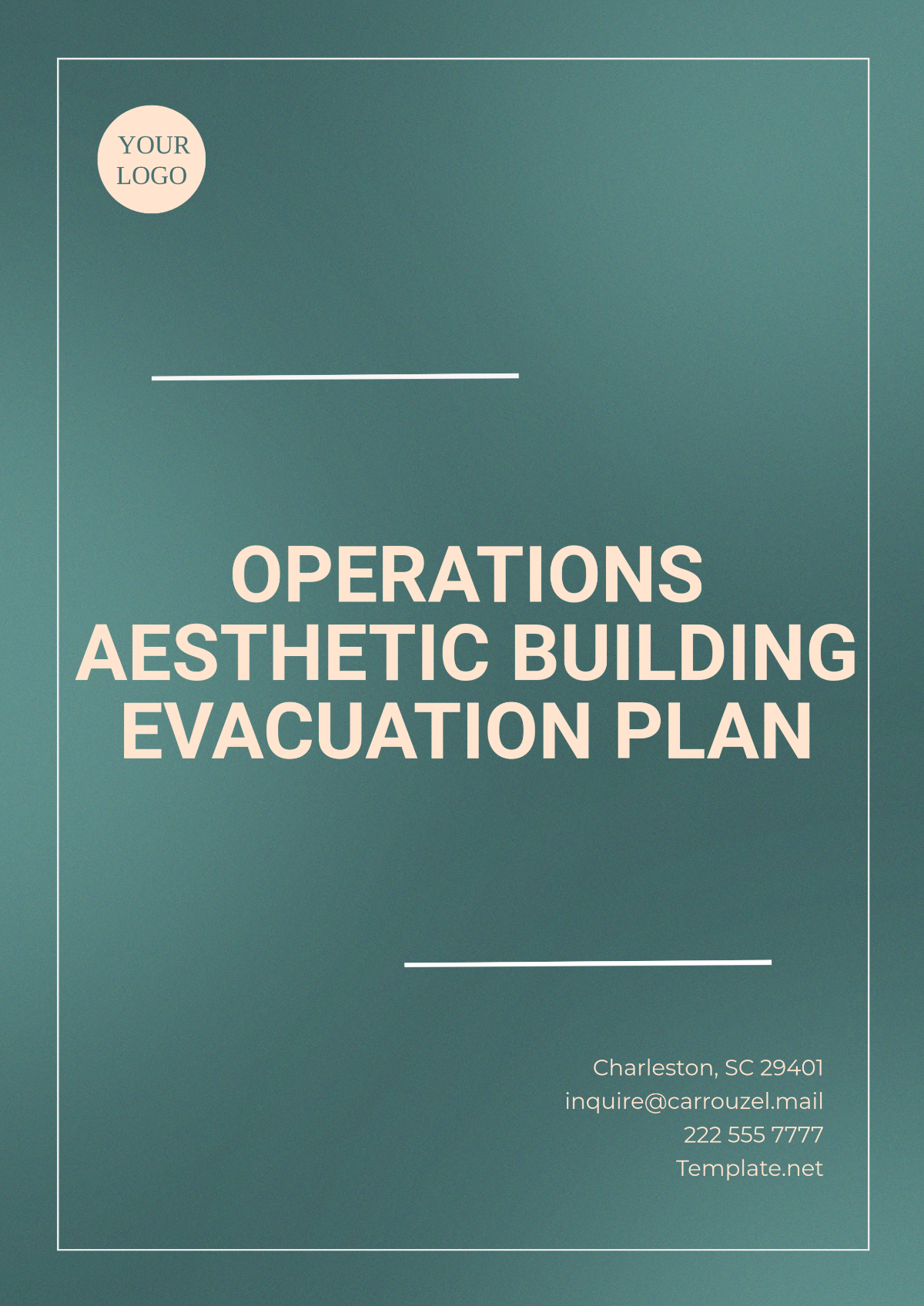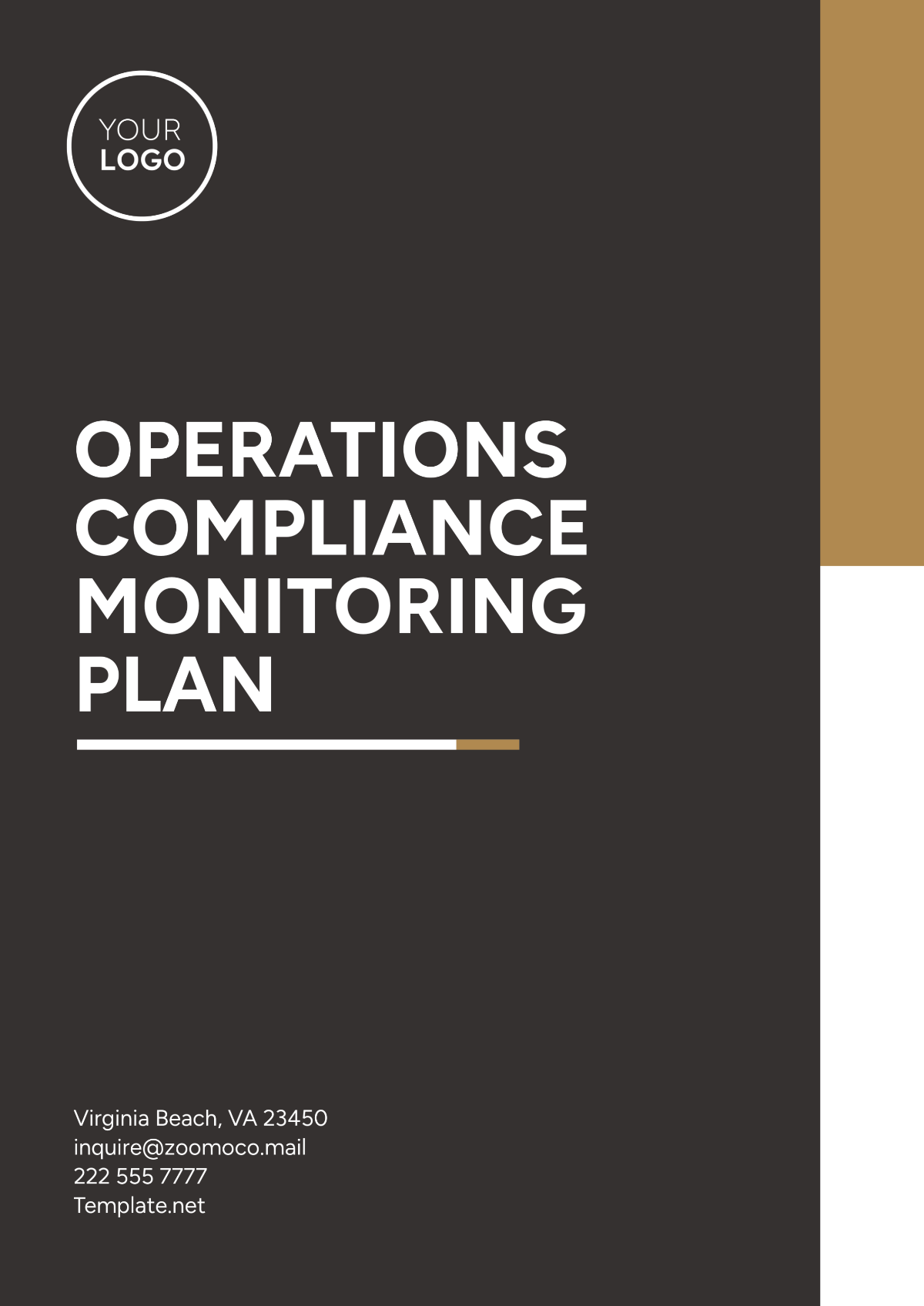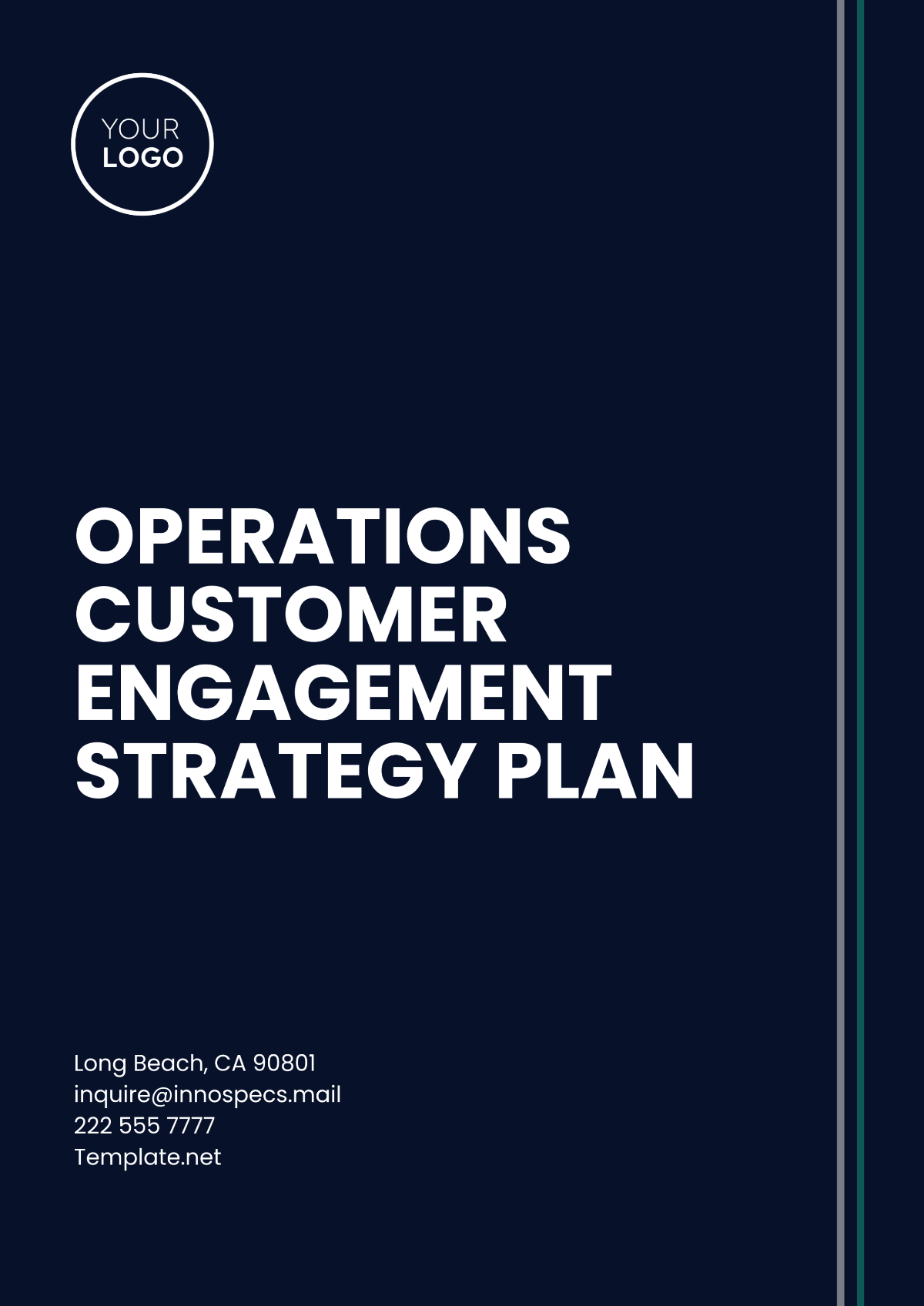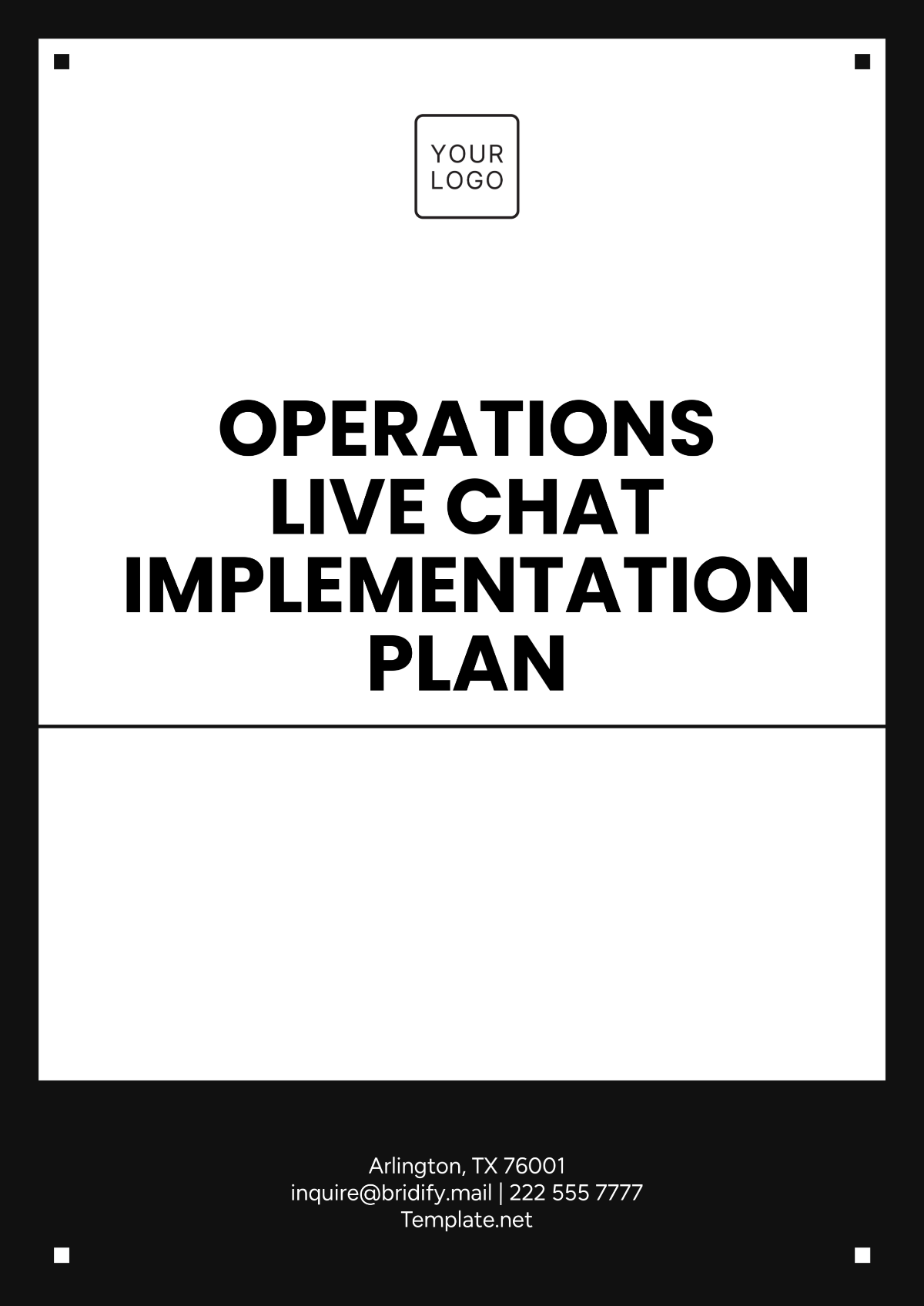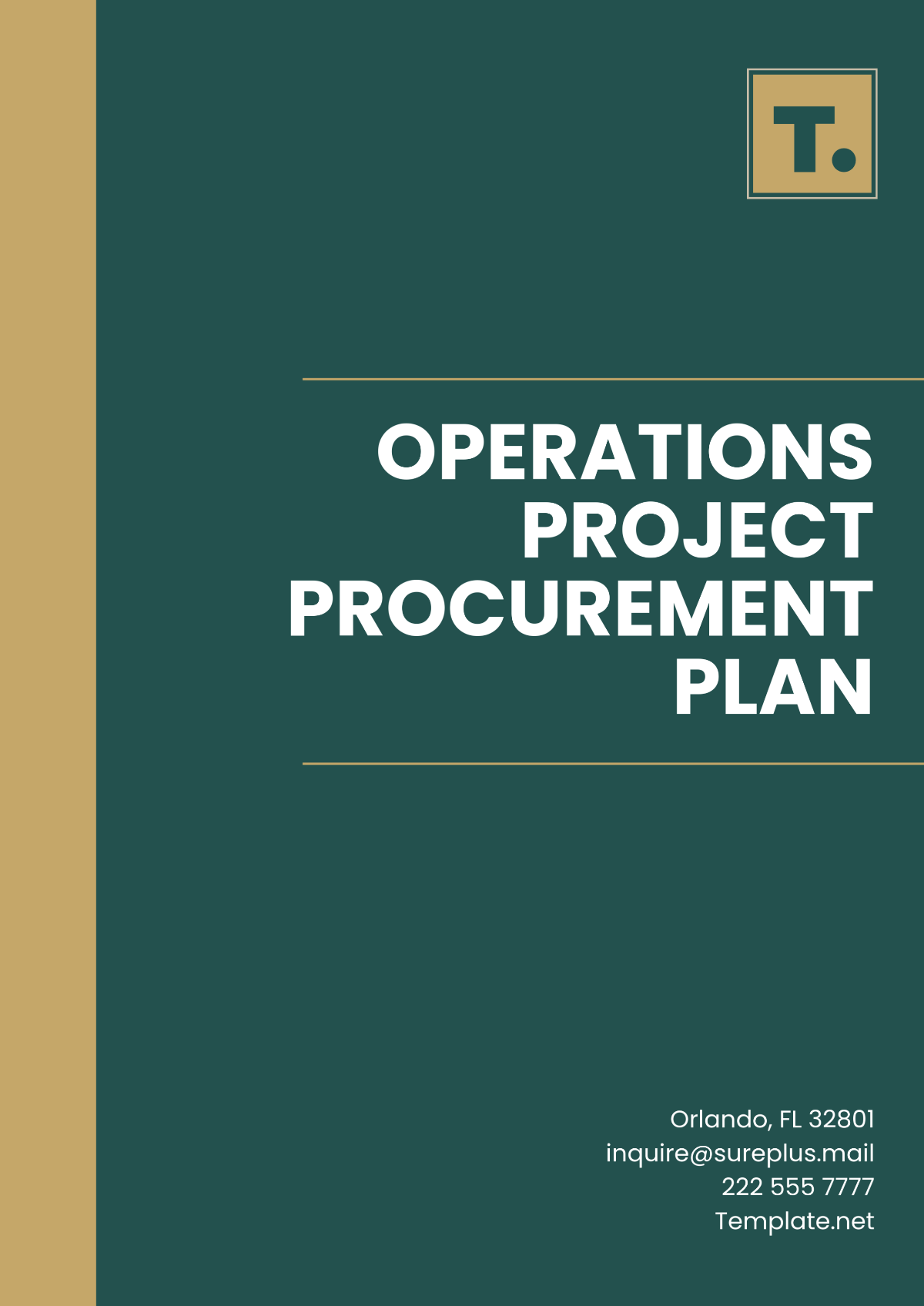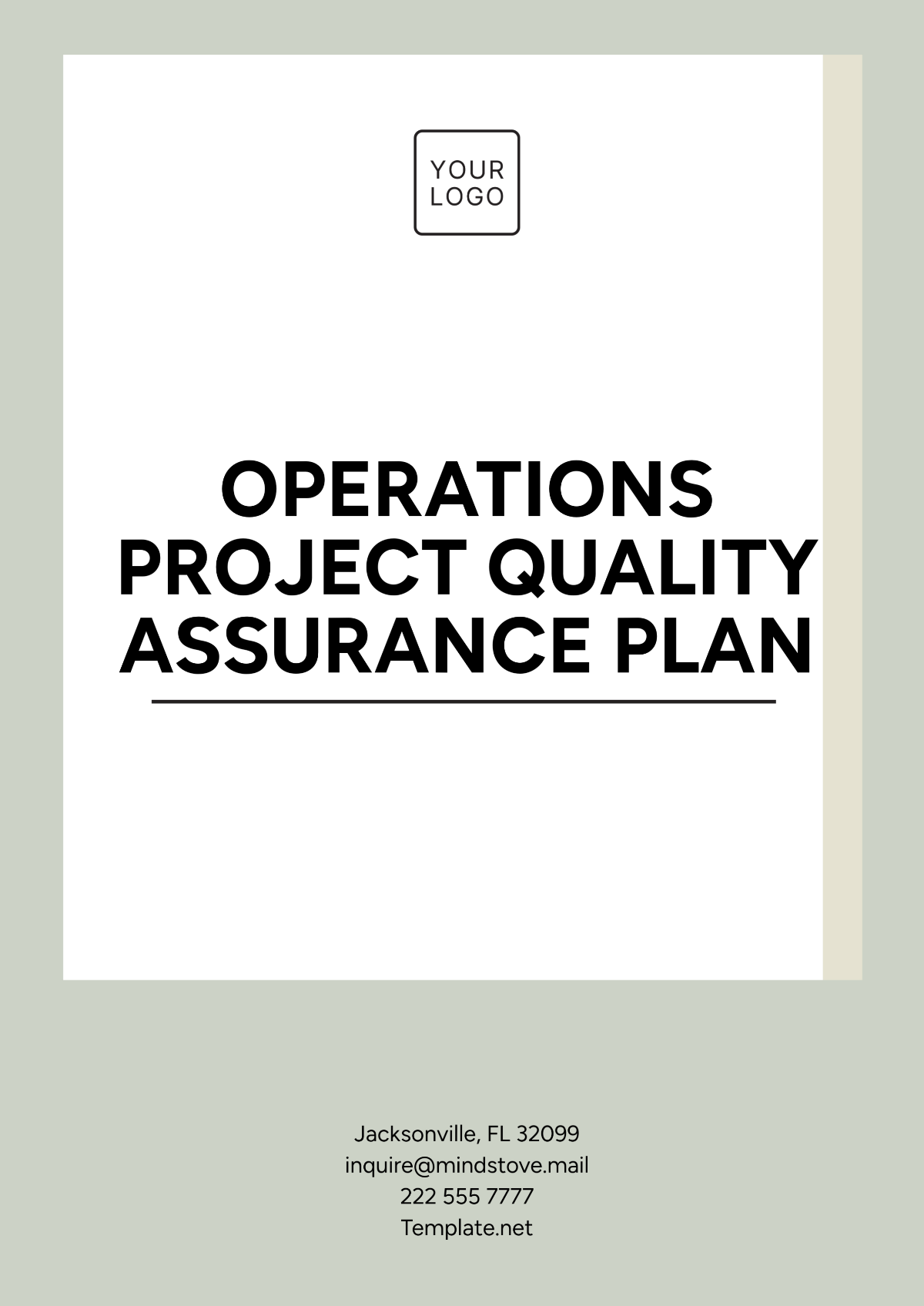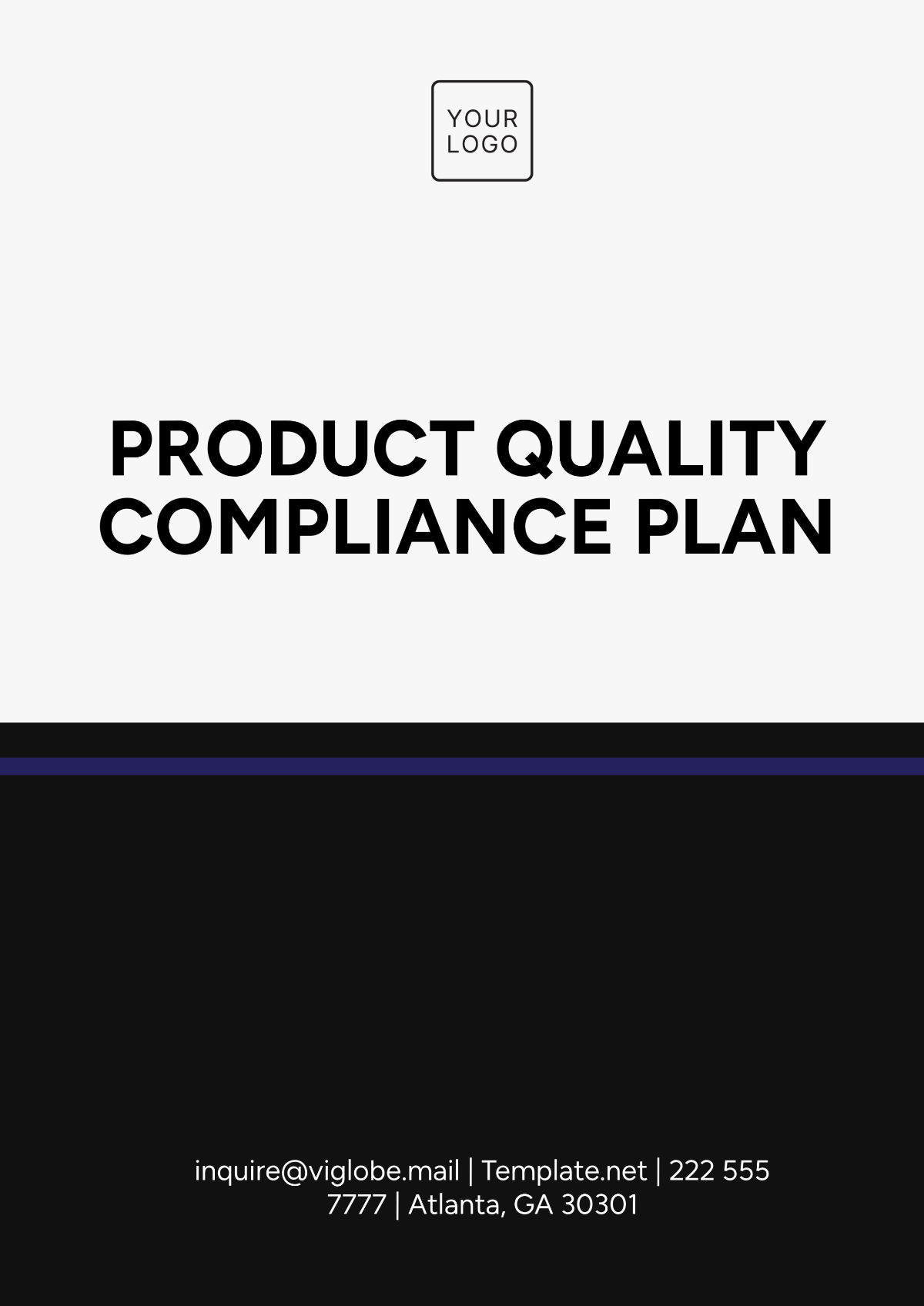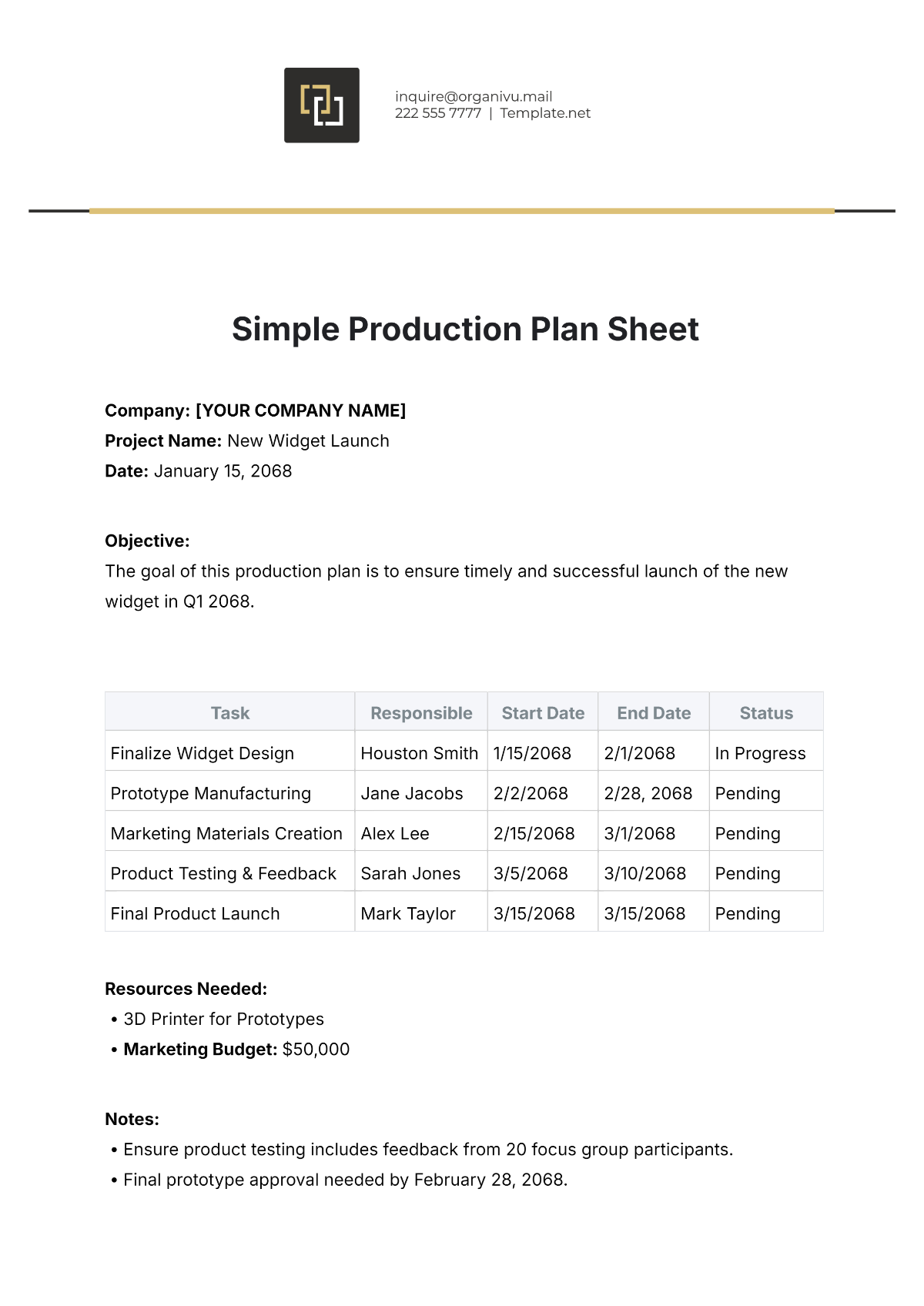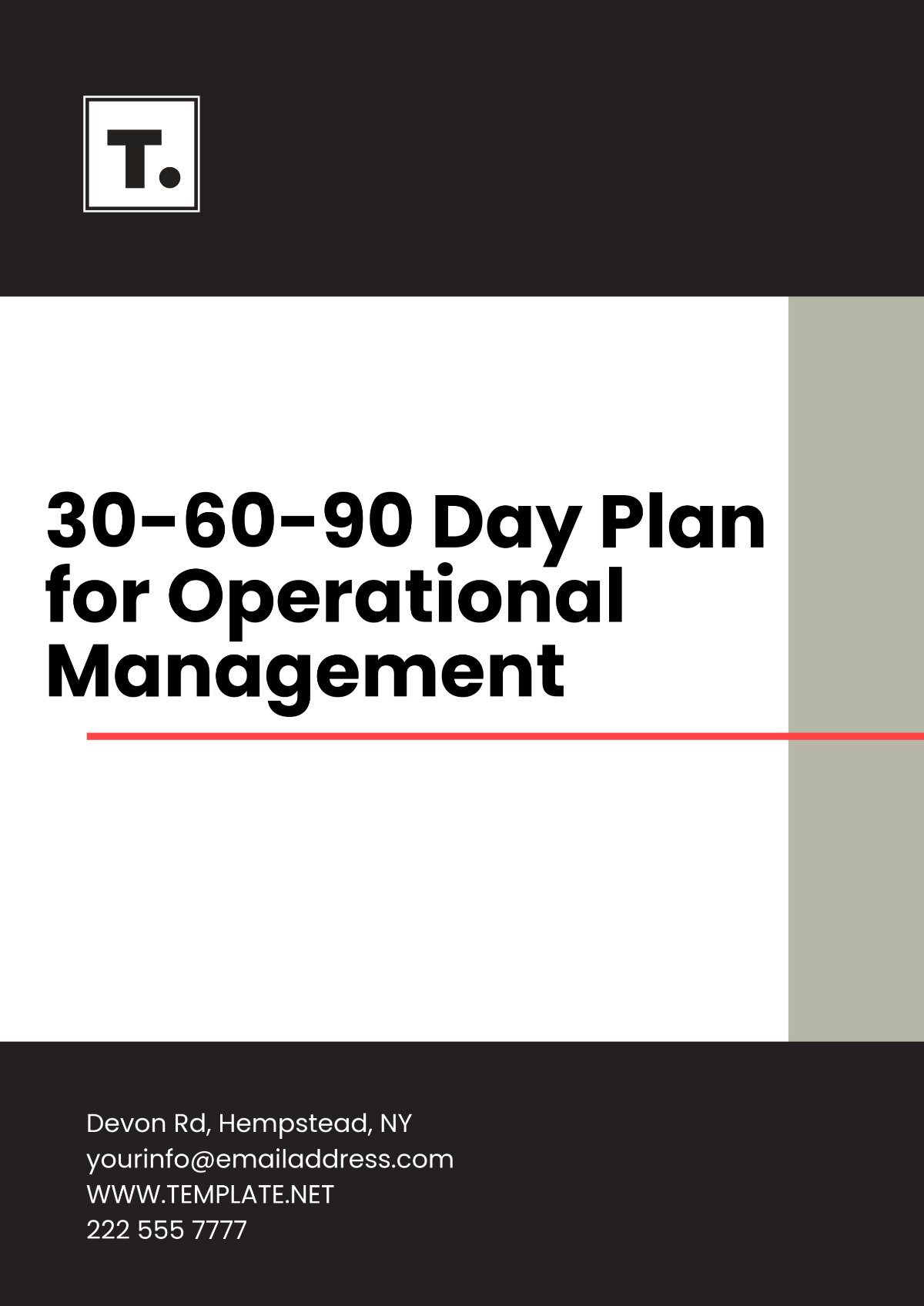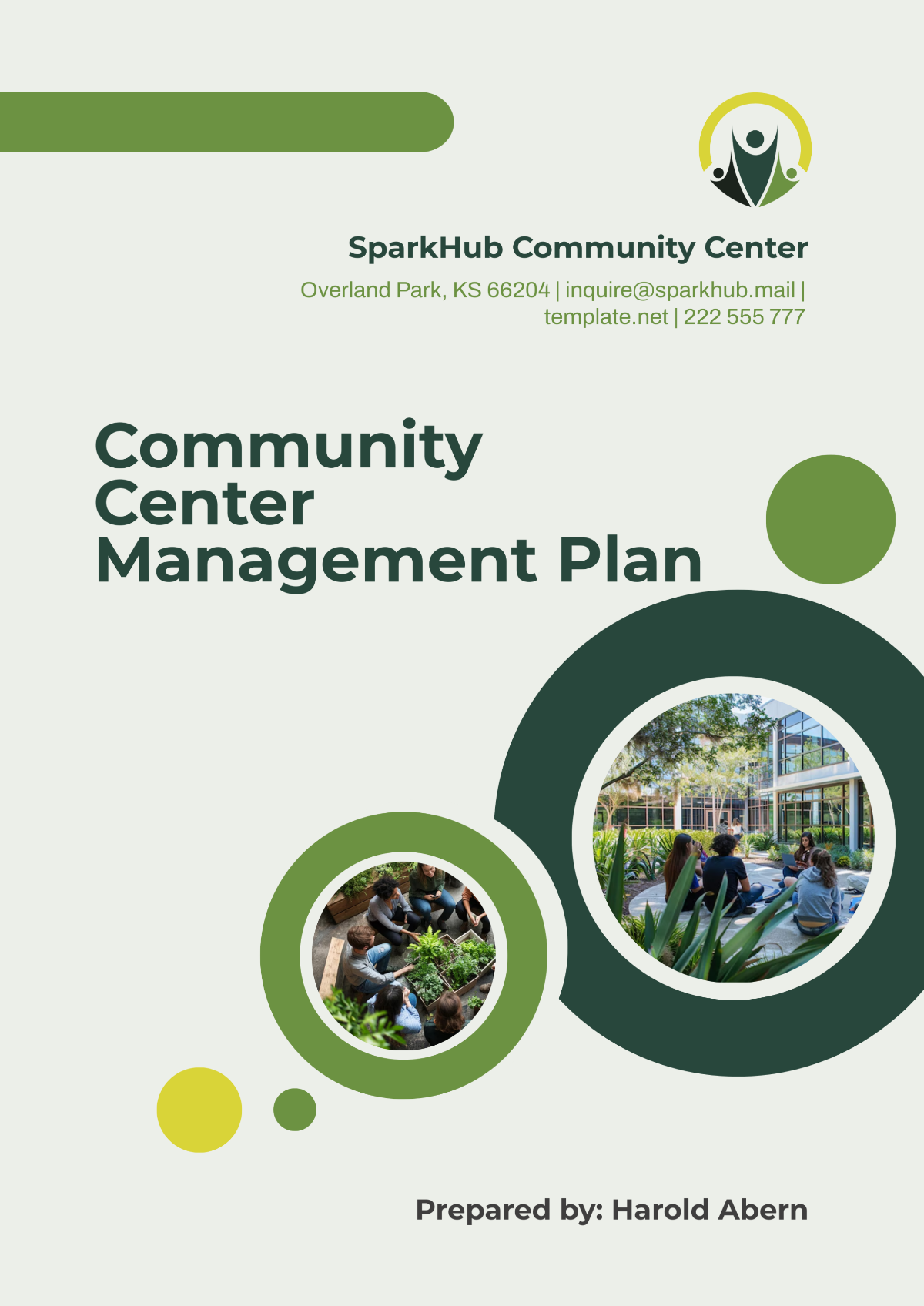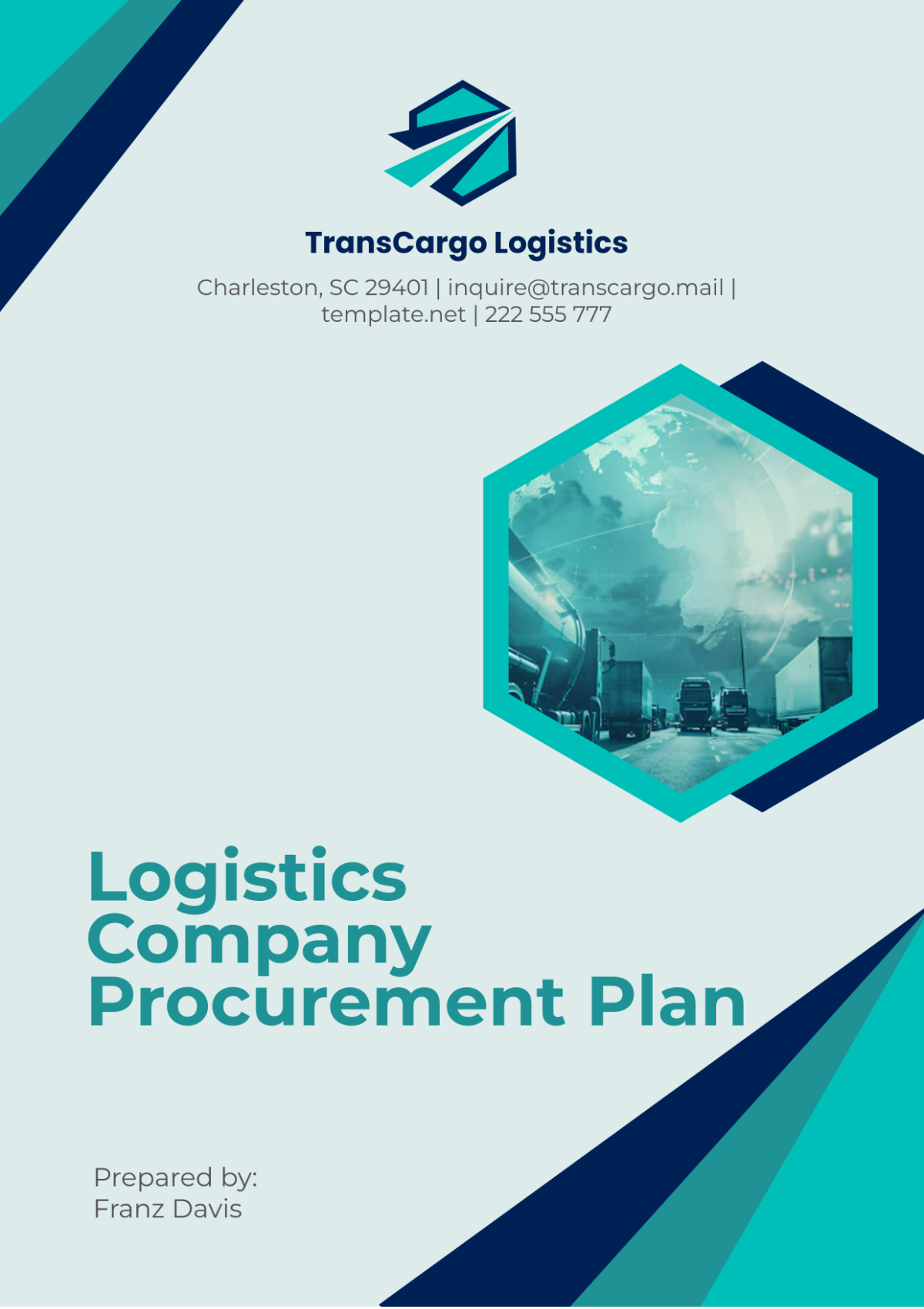Operations Project Cost Management Plan
1. Introduction
This Operations Project Cost Management Plan outlines the procedures and guidelines for planning, estimating, budgeting, managing, and controlling costs throughout the lifecycle of the operational project. The objective of this plan is to ensure that the project is completed within its approved budget while meeting all defined operational objectives.
2. Project Overview
Project Name: Facility Expansion and Automation Implementation
Project Manager: [Your Name]
Project Sponsor: Erica Price, Director of Operations
Start Date: January 15, 2055
End Date: December 15, 2055
Budget Overview: $2,500,000
3. Cost Management Objectives
Cost Estimation: To accurately predict the costs associated with all project activities.
Budgeting: To allocate funds effectively across all project phases and activities.
Cost Control: To monitor, measure, and control project expenditures to avoid cost overruns.
Resource Optimization: To ensure that all resources are utilized efficiently without exceeding budget allocations.
4. Cost Management Processes
4.1 Cost Estimation
Methodology:
The project will use top-down and bottom-up estimation techniques to determine project costs. Historical data from similar facility expansion projects, expert judgment from the operations team, and industry-standard cost estimation software (e.g., ProEst) will be used to forecast costs for both labor and materials.
Key Activities:
Collect data from previous similar projects within the organization.
Consult with experts from engineering, construction, and IT departments.
Apply standardized cost rates for labor, materials, and overhead.
4.2 Budgeting
Budget Breakdown
The project budget will be broken down into major categories including:
Labor Costs: Estimated hours for construction workers, project managers, and consultants – $1,200,000.
Material Costs: Materials for facility upgrades, automation equipment, and machinery – $600,000.
Operational Costs: Utilities, temporary operations during construction, and rent for additional space – $300,000.
Contingency Fund: A 10% contingency reserve to cover unforeseen costs – $250,000.
Approval Process
Once the budget is developed, it will be reviewed by the Financial Controller, and after adjustments and approval, it will be presented to the Executive Team for final authorization.
4.3 Cost Control and Monitoring
Monitoring Tools
The project will use Microsoft Project and Primavera P6 to track actual expenditures against planned budgets.
Reporting
Weekly financial reports will be prepared to provide updates on actual costs compared to the budget. Variances will be analyzed, and corrective actions will be taken when necessary.
Cost Control Procedures
Perform regular cost variance analysis (CV).
Analyze cost performance index (CPI) to assess the efficiency of the project's financial management.
Adjust project scope or schedule to accommodate any unexpected cost changes, with appropriate stakeholder approval.
5. Roles and Responsibilities
Project Manager: Responsible for overseeing cost estimation, budget development, and cost control throughout the project lifecycle.
Finance Team: Responsible for approving the project budget, monitoring actual costs, and ensuring compliance with financial policies.
Operations Manager: Ensures that the allocated budget aligns with operational objectives and that resources are properly allocated.
Project Team Members: Each member, including the construction team and IT specialists, must report their respective cost-related activities to the project manager on time.
6. Risk Management in Cost Control
Potential Financial Risks | Mitigation |
|---|---|
Cost Overruns | Risks include unforeseen increases in labor or material costs. |
Maintain a contingency budget and forecast periodically to account for potential cost fluctuations. | |
Delays Impacting Costs | Delays in project timelines can result in additional costs. |
Implement strict project scheduling and monitoring procedures to ensure that timelines are adhered to and delays are minimized. | |
Scope Creep | Unauthorized changes to project scope can increase costs. |
Implement a robust change control process that requires approval from stakeholders before any scope adjustments are made. |
6.2 Risk Monitoring
Risks will be tracked through regular reviews of project progress, cost performance analysis, and consultations with stakeholders. Mitigation plans will be activated as soon as potential risks are identified.
7. Cost Reporting and Documentation
Weekly Financial Reports: The project manager will submit weekly reports detailing the financial health of the project, including a breakdown of expenses and variances.
Monthly Budget Reviews: A detailed review will be conducted at the end of each month to evaluate if the project is on budget, assess cost performance, and adjust projections as needed.
Final Cost Report: At project completion, a final cost report will be produced that compares actual costs to the initial budget, including explanations for any significant variances.
8. Conclusion
This Operations Project Cost Management Plan provides a framework for managing the financial aspects of the Facility Expansion and Automation Implementation Project. By adhering to the procedures outlined in this plan, the project aims to achieve its operational goals within the specified budget, ensuring financial stability and success. Effective management of project costs is critical to the overall success of the operations project, and continuous monitoring and adjustments will be key to staying within budget.
9. Contact Information
For updates and insights on project costs, please contact:
Project Manager: [Your Name]
Email: [Your Email]
